#and i know the flaws in our education system not all american kids had the privilege of receiving the education i have
Text
Campuses across the nation are debating what is and isn’t free speech. CEOs and online trolls are canceling young people whose positions they consider hateful. Pro-Israel and pro-Palestinian faculty are taking sides. Students are hollering at administrators to do the same.
I am a lecturer in rhetoric at San Diego State University. Our biggest problem on campuses isn’t apathy, equity or AI. It’s that we aren’t teaching kids to grapple with complex ideas.
I don’t just mean they lack the ability for analytical thinking or deep focus — though these are real and troubling issues — but that young people today do not know how to figure out what they think. They know how to summarize.
Don’t blame the kids, or even social media. Their unnuanced arguments are a flaw of our education system. But the urgency of the Israel-Hamas conflict presents an opportunity to encourage young people to understand complex issues and articulate thoughtful positions on them.
In my class, I often introduce my students to F. Scott Fitzgerald’s definition of intelligence: the ability to consider conflicting ideas and not lose your mind.
As a secular Jewish woman, I can be both broken-hearted over the 1,200 Israelis killed (and the 200-plus hostages who were being held) in the Oct. 7 Hamas attack, and also grieve for the more than 13,000 Palestinians killed in Israel’s retaliation. As an analytical thinker, I must concede that I cannot understand a quality of pain that would cause members of Hamas to kidnap and assault young women, or storm houses and slaughter families — just like I cannot entirely fathom how generational trauma of the Holocaust can ignite thousands of Israelis to dehumanize their neighbors, bomb innocent civilians and cut off their access to basic human needs.
After drawing on reliable sources, cross-checking media and inviting diverse perspectives, I arrived at Team Human. I want Jewish people to have a safe place to call home, but I cannot be complicit if that creates an unsafe space for others.
Embracing the complexity changes the conversation. And opens it up. Most often, however, this begins in the uncomfortable place of listening.
Obviously, we can’t allow hate speech or ignorance to proliferate on college campuses. It’s important we understand the dangers of otherness in our rhetoric. But right now, when young people have strong opinions about a global issue, we should be careful not to instill in them a fear of speaking up.
Rather, we educators need to step up. We can challenge students to understand the multidimensionality of the conversation and to learn to apply these skills to issues in their lives.
We need to help them — and the rest of society — move beyond the binary. If we set up guidelines for people to feel safe, such as agreeing that calling out the Israeli government isn’t automatically antisemitic, but saying we must rid Israel of Jews sure is hateful, we might begin to move beyond the black-and-white thinking that has poisoned domestic and international politics.
That’s not an easy task. I recently had to get past my biases and assumptions to teach one of my own students. She had written an essay — more of a rant — about why all Americans should side with Palestinians. Despite the sting of her words implying that for Palestinians to be free, Jews must leave Israel, my job was not to shut her down but to help her express her opinion clearly in a multidimensional way.
Instead of excoriating, failing or canceling her, I posed questions designed to help her think more deeply about her stance. I encouraged her to understand her biases and assumptions, add factual, peer-reviewed evidence and acknowledge the other side.
Educators can learn from our students’ passion and curiosity for the world and teach them how to digest complex global issues. What’s dangerous are the simplistic arguments — the one-dimensional ones we see all over social media that disregard years of turbulence and peace accords, or Hamas’ doctrine to end Israel, the dubious role of Britain in the post-World War II creation of Israel, the far-right leadership in Israel that citizens had been protesting for months leading up to the Oct. 7 attack and Israel’s decades-long oppression of Palestinians.
We know what happens when we begin to believe singular perspectives — we need look no further than the U.S. Capitol on Jan. 6, 2021.
Regardless of our personal perspectives, educators have to help young people understand complexities as campuses see a rise in antisemitism and Islamophobia. Even simple things, such as noting differences between a Zionist and a Jew, or Hamas and a Palestinian. Just think if we taught students about the depth of trauma for Palestinians and Israelis, Jews and Muslims.
Can we hear the outrage of youth and allow it to introduce more nuance into our own beliefs? Instead of canceling young people for having opinions, let’s invite them to speak so we can listen. Conversations exposing different perspectives will be uncomfortable. But they also might move us beyond our biases before we get into one more turbulent American election cycle.
Michele Bigley is a San Diego-based educator and writer.
1 note
·
View note
Text
I’m so sick of seeing that one tweet on Twitter today like pls shut up and stop finding reasons to shit on Americans at every chance you can get —
#we suck#WE KNOW#but stop acting like we can control our fucking education system bc we cant#oh and try me bitch#i know my damn geography#and i know the flaws in our education system not all american kids had the privilege of receiving the education i have#like stop#JUST STOP#blabs#so im done with twitter for the day
1 note
·
View note
Text
As many of you may know, I'm a first grade teacher in real life. And I am constantly seeing all these cold takes all over the internet and newspapers, from people all over the political compass, about how teachers are either "indoctrinating our children with liberal bs" or "taking out their rage on marginalized students and brainwashing kids to be docile workers." And listen, I'm the first to admit that the American education system has deep flaws. I have a master's degree in education, that's all we ever talked about!
But here's the thing: I love my students. I get to school at 7 am to set out their morning worksheets and sharpen their pencils and make sure the millipedes are ok (because I gave the creatures names and backstories and now my students love them). I don't have set periods to teach art or science or social studies because all we have time for is math and reading, but I try to make these boring lessons as exciting as I possibly can. I've spent hundreds of dollars this year on snacks and books and school supplies and prizes, because my students are mostly pretty poor. I stay after school for hours preparing everything for the next day. I try my best to soothe kids having panic attacks and let the wiggly ones move around. I let my students share their cultures as much as possible and talk to my coworkers of different races about how to make school more inclusive.
Oh, and the summer vacation everyone always brings up? The one that means teachers have it easy? It doesn't exist for most teachers. We don't get paid in the summer. I'm having to work 2 jobs this summer so I won't starve. Gosh, I sure am lucky.
So here's my question, for everyone who's decided that the teachers who hurt them or had views they disagreed with meant teachers are evil. How much more do I have to sacrifice to make you see me and my colleagues as human?
Seriously, how much more? Because I am so broke and so overwhelmed and so, so tired.
#teaching#education#if one of you responds to this post with#well I've never seen any of those takes#then i will roll my eyes
41 notes
·
View notes
Text
The Talk
Today is Juneteenth. Today, for the first time in our nation’s history, this is marked as a Federal Holiday.
Like many white people who grew up in a bubble of white privilege, I was not even aware that this day existed until a few years ago. It wasn’t anything that my parents talked to me about. It wasn’t brought up, even in California public schools, or at my super-liberal California State University back in the 1990’s.
That’s part of the privilege of being white. I get to live in the safe-cushioned notion that Independence Day means just that, and that the enslavement of millions of people over the course of our history is a historic footnote, not a defining moral stain and original sin of our nation. I get to live with blinders and repeat what had been repeated to me – that if you work hard, if you keep your nose clean, if you do your best, you will be treated fairly and have a shot at the American Dream.
It’s only in recent years that I, like many naïve white people, am awakening to an entirely different reality about systemic, institutional racism, and my own complicit role in it.
I’ve got two kids. Statistically, they have every advantage in life. They are white, they are the offspring of middle-class, college-educated parents. They are male. And as part of my own awakening, I’m trying to have conversations with them about what it means to be white, to have an advantage and not be ignorant or oblivious to the privilege that they have because of their race.
I fumble. I’m not sure how to do this. I’m not sure I get it right. We talk about Harriet Tubman, we talk about Martin Luther King, Jr. and Rosa Parks. I look for stories and experiences I can share with them to help my kids understand the story of Black experience.
The other night at dinner, I told them the story behind Ashley’s Sack. This simple flour sack is one of the more moving pieces at the Smithsonian Museum of African American History. It’s a small bag that Ashley’s mother gave to her, filled with a handful of nuts, an old dress, a lock of hair, and love. Ashley’s mother gave her this sack as Ashely was being sold away from her family. Ashley kept the sack and passed it down to her children and their children. She never saw her mother or family after she was sold. She was nine. She was about the same age as my own kids. As I told my kids Ashley’s story, I could see their eyes welling up with tears. I didn’t sugar-coat any of it. This was the horror of slavery; this is what we did as a nation.
But I feel even that isn’t enough. It’s one thing to acknowledge the abominations of the past. It’s another to try to speak to how we, as white people, have benefited from it. And I’m not sure how to do that. I try. Last night, Xander was watching a YouTube show about all the American Presidential elections.
“Do you notice something about all the presidents and their opponents?” I ask.
He wasn’t quite catching on.
“They are all men,” I prompt. “And except for Barak Obama, they are all white.”
He mutters a ‘huh.’
“Why do you think that is?” I ask.
He says he doesn’t know.
And I tell him that it’s not that white people and men are smarter or cleverer. It’s that they had the advantage. They were able to go to school. They were considered citizens. They could vote and hold office. And even after the 15th and 19th Amendments, the fact that we have only elected one Black president and one female VP shows that there is still something inherently flawed in our system.
I’m not sure my ten-year-old understood what I was trying to say. Again, I’m not sure how to have this talk with my sons. But it’s a talk that I need to have, and need to continue to have. It’s not enough that they grow up believing in the American Dream and equality and learn the names of Martin Luther King Jr. and Rosa Parks. I got that fed to me when I was in school, and it left me oblivious to the true cost of systemic racism. This is a difficult conversation and I worry that I’m going to screw it up. How do I tell my kids, “You’re at an advantage because of your race,” without sounding like a racist myself, without putting whiteness on a pedestal?
As a mom, how do I talk to my kids about what it means to have white privilege in a way that gets them to understand that we have a role, as white people, in deconstructing the system that has led to the advantages we enjoy (and are often oblivious to)?
I don’t have the answers. But I do know that I cannot ignore this. It is a talk, a conversation, we need to have. And like most things with kids, it’s not enough to tell them once and forget about it. So we talk about Black Lives Matter, we talk about segregation, we talk about slavery. And I need to talk to them about white privilege. If you have comments, suggestions, or thoughts, I’m all ears. Because I don’t want my kids to be as naïve as I was.
1 note
·
View note
Text
Among Us
So this is going to get long, this is going to get personal, this is going to be about prejudice and race and self-serving bad-faith arguments and flawed rhetoric. And for all of these reasons I’m going to leave the rest of this under the cut.
As a few of my friends will know, earlier this week I was delivered an ultimatum from my landlord/roommate. He disguised it well, telling me he was ‘concerned for my mental health’ that my ‘negativity was dragging the whole house down’ and that I was simply too filthy to live with. I won’t pretend I’m a neat freak, and I can honestly say that I have taken some pains to clean more since, to his surprise and delight, though its particularly hard to take coming from him.
“You’re always so down. It’s making you lazy and thin skinned” You know its funny you should say that, now specifically, because I’ve actually been on the up and up this last week and you didn’t mention this at all in January when I was actually at my worst, or February when I was afraid I was going to have to quit my job, or back during the holiday season when retail work was breaking my back... Only now do you think to check in on me?
“You left a pair of gloves, a letter, and a small wooden trinket on the table!” Indeed I have, as you have left your pair of gloves, well over 21 letters, and regularly set your packages on this same table, including today two packages to be returned to amazon. I didn’t realize I didn’t get to use the table the same way you do.
“You don’t do dishes! except that you did this week, which is cool I guess but still!” You do realize that I actually hand-wash every dish I use within 24 hours of using it, right? And that often the dishes you come to me bitching that I never cleaned are in fact your fiances, yes? Ok good, next question.
“You’re always complaining about work. I don’t mind that you vent, but its all you talk about anymore!” I have either lost or walked away from 4 jobs in this last year, and that has not been easy, or fun. I have worked essential retail jobs the entire pandemic thus far. Additionally, in the months leading up to you storming out of your 75k a year salaried sales job, I had told you to leave it because I could see that it was killing you. You got so fed up with the job that for 4-5 months before you left your grandma-paid-off-my-second-mortgage capitalism-knows-best-pull-yourself-up-by-your-bootstraps-ass spent more time playing valorant and league of legends on the clock than doing actual work. Need I remind you that every time I stepped into your office, or simply stepped upstairs to get ready for work, you would complain about how awful your managers were, or how shitty someone had been to you over the phone? DID I EVER BELITTLE YOU FOR ANY OF THESE THINGS????
The real kicker was that the spark, the moment that started this (at least for him) was me trying to explain why racism and ‘cultural supremecy’ was bad. I had brought to him something I thought we could both agree on, that we could both laugh at. I brought him a series of tweets about how problematic Van Gogh was for studying and imitating traditional japanese painting techniques. He took this, and immediately turned into a piece of the culture wars. Now, I agree, this is an egregious example of trying to ‘cancel’ someone. How cancelling a long dead artist who couldn’t sell his art while he was alive is important is beyond my comprehension, its not as though the market value of these comes up very often, and almost no-one will ever have a chance to buy or reject a Van Gogh. But to him this was emblematic of ‘liberals’ cancelling Seuss and Rowling.
He even went so far as to say that Van Gogh probably ‘did it better’ than the artists he was studying/imitating. Now, this is a huge red-flag to me because this is straight out of the Nazi playbook. This is William Shenker, proposing a theory of music to proof ‘German cultural superiority.’ This, if you will pardon my language, is the real culture war: trying to supplant other cultures art and history with western figures and events.
Now, for those of you who don’t know who I’m talking about, this man is sexist. He doesn’t believe women are equal, complains about women’s sports, and rejects a woman’s right to choose. This man is a transphobe, questioning the logic of ‘safe-spaces’ and allowing people to change their pronouns. This man is a Trump supporter, and voted for him twice. And all of these things I found out years after we became friends. I have in the past contemplated what it would take to cut him out of my life wholesale. Despite our wealth of shared experience and our shared interests, we’ve been drifting apart as he drifts further and further to the right. And he has been drifting. He’s parroted more bad-faith arguments from Ben Shapiro and Tucker Carlson in the last 6 months then he ever did when I first moved in with him.
I have been trying to push back, especially when he says the quiet parts out loud. I try to let him know that it is not acceptable to say he would rather an unarmed black man die that risk that a police officer might be injured. When he compares the people in control of Seuss’ intellectual property and works choose to stop printing less than 6% of his published works to the book burnings in Mao’s china. When he says that its more important to protect teacher from students trolling them by changing their pronouns than it is to protect trans or NB kids. When he espouses his belief that trans and NB kids are ‘just mentally ill.’ Whenever he says any of this shit, I have pushed back. I have tried to halt, or at least slow, his descent towards eugenics and white supremacy and fascism.
It has been to no avail.
And to be honest its exhausting. I wanted to believe that he would trust me, not just to be a moral and thoughtful person, but to be educated and informed on these issues. We went to school together, spent countless hours solving homework and trying to crack games together. If I don’t know the answer to his questions immediately, he often jokes ‘C’mon, you’re supposed to know everything!” and has frequently told me that I’m selling myself short.
But apparently all that trust and all that respect goes out the window when I challenge him. Suddenly I’m ‘overly negative’ or ‘too sensitive’ or he’ll ‘need to look into that, but...’
And the thing is, he is capable of great acts of kindness. He offered to rent me a room in his completely paid-off house, no mortgage at all, simply because he could see living at home was killing my mental health. He offered me 50-75% off of market rate. He buys gifts all the time, has landed tenants job interviews, set people back on their feet, and refused to press charges for several major financial loses he’s taken on the determination that it would do more harm to the defendant than he could ever recoup from it.
But he does not extend this kindness, this generous soul, to everyone. And lately, his circle grows smaller, and his kindess has waned, and it’s been so devastating to see him slip further and further towards his own worst impulses.
I know there will be people who think I should have cut him out of my life years ago, who can’t believe we never talked enough to know that he voted for Trump in 2016. I think back then he was genuinely ashamed, or at least guilty, about that vote. Now? It’s almost a matter of pride for him. I can’t tell you the number of times in the last 4 months that he’s told me that Biden “couldn’t possibly” be as “great” a President as Trump.
And he hides behind this “praise them when they do good, cuff them when they do bad” line and I used to take comfort in it but now... Now it’s clear that it was just a front or excuse for liking these abhorrent people.
I’ve had a couple of hard conversations with some of our mutual friends about what this means for me, and how I interract with the whole group of friends as a whole, in the last 3 days. None of our mutual friends seem to take any of these things as seriously as I do, with my oldest friend even telling me that he ‘can’t imagine’ breaking a friendship off over politics.... I know I know, the caucasity of it all, yes ha ha. And it does make me genuinely worried that I’ll wind up losing the 5-6 close friends that I actually rely on these days over this horrible sonuvabitch. But all this personal venting aside, there’s something bigger here I want to address:
I sat down this evening to watch Last Week Tonight and I was struck by this piece about Tucker Carlson, because while I knew some of what was said on his show, he is remarkably confident for a man who spouts the quiet parts of racism/sexism/homophobia on TV. I have a hard time imaging a more blatantly racist thing to do then declare that a woman who suggested ‘dismantling systems of oppression wherever they are found’ wants to dismantle the American system...
And I have to say, we should go back to punching Nazis. I want these fuckers afraid. I want them to crawl back to the furthest reaches of the internet, relegated to be laughed at for their bigotry by pundits of every political ideology. I want their vile vitriol hidden away where it doesn’t embolden others. I want them to know that they are out of line, out of touch, out of time. I want them to feel ashamed, like the relics of a bygone and worse era that they are, and for them to quietly fade to an ignominious death. I’m tired of seeing them on National News. I’m tired of Pewdiepie’s channel and influence refusing to die despite all the horrible things he’s said and done. I’m tired of Ben Shapiro spouting off about a woman’s place and rights, as if he has any fucking authority on the matter. I just want these people to lose their platforms and their followers. And for me the fact that they haven’t yet is so incredibly discouraging.
I know I didn’t offer any answers here I’m just tired of being alone with this defeated attitude and I guess I needed to get this off my chest as I try to disentangle myself from the losing battle of trying to save a friend from alt-right radicalization.
#tw/ white supremecy#tw/ sexism#tw/ racism#tw/ transphobia#wooow this got longer than I expected#meta: alt right radicalization#and how they're reaching people my age#plus a lot of personal venting
1 note
·
View note
Text
Parents are the Worst.
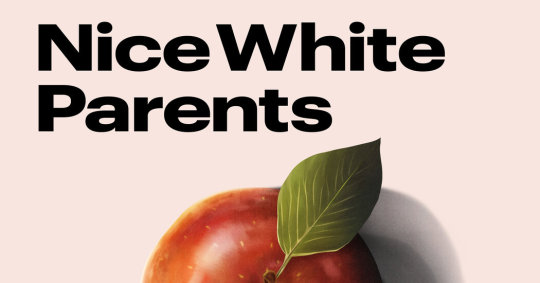
I recently began listening to Nice White Parents, a new podcast hosted by self-confessed nice white parent, Channa Joffe-Walt. It’s produced by the people in and around Serial, This American Life, S-Town and The New York Times. If you are familiar with those titles, you’ll know what to expect – in-depth, considered analysis of a heretofore, under-exposed social issue, executed with an East Coast progressive liberal stride; a pleasingly audible, irreverent gait and the swagger of emotional intelligence and self-aware humility. Through research, interviews and attaching herself to the Brooklyn School of International Studies for several years, Joffe-Walt tells the story of the New York Public school system and its apparent failure to meaningfully integrate itself since Brown v Board of Education made racial segregation illegal over 65 years ago.
In episode 2, Joffe-Walt tracks down and interviews some nice white parents from around the time the school opened in 1963. These people had written letters encouraging the school board to erect the school building closer to their own neighbourhood (and consequently further away from the darker-skinned families it was more likely to serve). They expressively emphasised their wishes to send their kids there and virtuously aid the process of integration, which they believed to be morally imperative.
But apparently, none of these letter writers subsequently sent their kids to that school. It remained, as anticipated, a predominantly non-white school. Laid alongside the tense machinations of the contemporary school’s invasion by a large new cohort of white parents and their issue, Joffe-Walt’s hypothesis is that white parents have always held liberal aims, and the clout to impose them, but do so with little consideration for their non-white counterparts or any real commitment to seeing through the incumbent practicalities. From the outset, this natural conclusion is persistently hinted at, not least from the podcast’s deliberately provocative title. Perhaps, on an individual level, this hypothesis contains some truth.
However, as the story extends, the blame gains weight and the theory mutates into a generalised accusation. Responsibility for the mediocre state of New York’s (and by implication, America’s) public schools is explicitly laid at the pale feet of white parents. It's an exposition of what is often described as “White Guilt” and its corresponding effort at contrition (i.e. the guilt felt from the inherited sin of one’s ancestors’ oppression of non-white people, primarily through slavery). While White Guilt might have its conceptual uses for a few people to come to terms with idea of race (although even there I am sceptical), its value as a wider social narrative is deeply unconvincing, and potentially damaging. Nice White Parents does a good job showing why.
In the podcast, anecdotal evidence is drastically extrapolated to justify White Guilt. Unless backed up by unequivocal data, it is inherently flawed to base so much on interviews with a handful of people in their 80s about a letter they wrote in the 60s, and (in episode 3) a now middle-aged woman about her perception of school when she was 13. Equally so is to use the example of a single New York school to imply that nice white parents are universally responsible for all the failings of American public schooling. A quick empirical comparison with countries unburdened by America’s racial psychosis would almost certainly reveal this argument to be fundamentally false. I hazard to suggest that Joffe-Walt set out, either consciously or subconsciously, to prove the theory of Nice White Parents, and has therefore fallen into the trap of verification bias.
Of course, the truth is likely to be far simpler – green, cheddar, dead presidents and moolah (which middle-aged white people in American disproportionately possess). Better schools arrive from broad, deep and perpetual community investment – from good, affordable housing and well-paying jobs to well-paid teachers and decent facilities. That means higher taxes on the wealthy and better provincial management. If a completely non-white school district received $50 billion to invest in their community with educational improvement as its ultimate goal (that or the abolition of private schools), I suspect the idea of nice white parents would quickly evaporate.
It is plainly a damaging distraction to focus on the role of supposed-predisposed-racism of well-meaning, middle-class people, who simply want the best possible education for their children. Instead, the message for the “hereby accused” should be to use their numerical majority and voting power to advocate for systems that would reduce inequality, regardless of race. In this respect, it strikes me that wealth is a sacrosanct subject in America, something that one can never apologise for having too much of. Quite the opposite – the culture is built on celebrating those who hoard capital. Is it possible that Americans are taught never to apologise for having money, so those who see something wrong develop other issues, such as race, for which they can atone?
More deeply, the podcast reveals how the White Guilt narrative is in ideological conflict with the very wrong it is supposedly trying to right. Taken to its conclusion, it inevitably reinforces the idea that white people are innately superior, and race is the primary determining factor for success in American life. In the context of the podcast, it is applied to suggest that New York public schools are destined to fail their students unless white kids and their parents get involved. It is gloriously ironic that condemning the influence of white parents on public schools serves to reinforce the supposed inferiority of non-white participants in the education system… because of their lack of whiteness. At the end of episode 3, Jaffe-Walt lays this out:
Nice white parents shape public schools even in our absence, because public schools are maniacally loyal to white families even when that loyalty is rarely returned back to the public schools. Just the very idea of us, the threat of our displeasure, warps the whole system. So “separate” is still not equal because the power sits with white parents no matter where we are in the system. I think the only way you equalise schools is by recognising this fact and trying wherever possible to suppress the power of white parents. Since no one is forcing us to give up power we white parents are going to have to do it voluntarily, which, yeah how's that going to happen? That's next time on Nice White Parents…
(Consider replacing every mention of “white” in this excerpt with “affluent”. Would that not feel infinitely more true?)
In fairness, the honourable, “anti-racist” intention is clear – in order to defeat “white supremacy” white people need to accept their inherited and systemic superiority and eliminate it. Sadly, any idea centred around race – whether malicious or well-intentioned – is bound to collapse under even the slightest pressure. To be truly anti-racist is to recognise that race itself doesn’t exist (other than as an abstract concept that, having infected people’s perceptions after four centuries of concerted, localised propaganda, must be eradicated). Race has no basis in science or nature; it cannot be quantified in any reasonable, measurable way. Simply, it is a lie; invented to excuse the exploitation of others for the purposes of wealth-generation. To base one’s actions on it in any way is to take a leap of faith into a void with no landing. Race is a malignant, empty God; belief in which is destined to lead to malignant, empty behaviour. “Racism” and “Anti-Racism” (as it is currently understood) are therefore both empty, malignant religions, practiced in service of a non-existent deity.
Notably, there are still two episodes to go (released August 13th and 20th). Either might serve to recover some balance. But by episode 3, the stage is not only set for this conclusion to be drawn, but the 1st Grade nativity is in its final scene and the wise men are long since gone.
All that said, if you let the incessant racialization of all things drift past you rather than choking on it, as plain entertainment – storytelling rather than journalism – it’s still an engaging listen; well-constructed and convincingly told. Furthermore, on a non-racial level (if you can somehow listen beyond it), the podcast does have some value, since it reminds me of something I have long half-joked about – that parents (of all stripes) are the worst.
Aside from the obvious, complex Freudian reasons, on a socio-political level, when a choice arises between a laudable, achievable change and putting one’s own children at a perceived disadvantage in order to effect it, a parent will choose its child’s advantage almost every time. No matter their colour, few parents will sacrifice their own child’s prospects – even minutely – to advance the hypothetical children of someone else, or society more widely. Parents are company directors whose primary obligation is to their miniature, genetically-derivative shareholders – they’ll only vote for large-scale change if it is net-profitable or government-imposed.
And of course, parents should pay their kids the maximum dividend. Who else will? A parent is legally and morally obliged to do the best for the young life they are charged with defending. And therein lies the joke. Parents are the worst only because they are ubiquitous. They created you, me and everyone else. We all had them, and most people end up being one. It is therefore less of a criticism than an inevitable, evolutionary truth – just one we should probably be more honest and upfront about. Unknowingly, underneath (and in some ways, because of) its misguided, exhausting racial handwringing, Nice White Parents just about makes this point.
Listen to Nice White Parents here or wherever you get your podcasts.
#nice white parents#podcast#parenting#education#race relations#critical thinking#review#podcast review#npr#this american life#new york times#capitalism
3 notes
·
View notes
Text
I've been a "gifted kid" with ridiculous amounts of pressure thrust upon me and I've also been the underperforming kid that the teachers treat like shit because I don't do well, because like everyone else I'm a normal, flawed human being with my own strengths and weaknesses and as such I'm good at some subjects and bad at others. I know exactly what both sides go through. The American education system fucks up the mental health of every student involved. The gifted kids and the underperformers are just two sides of the same messed up coin and this fabricated divide between them doesn't fucking exist and everyone trying to make it seem like one side had it easier than the other is just a self-pitying, guilt-tripping asshole who's missing the point entirely and needs to look at the bigger picture, which is that our education system is broke as fuck and none of us can escape that. And that's all I'm gonna say on the matter. Send tweet.
21 notes
·
View notes
Text
Of Politics and Road Trips
Welp, it seems like the time has come to address one of the gnarliest and most frequently asked questions of all time. To be clear, that's gnarly for me and to me, respectively. I’d also like to memorialize a recent road trip. Before I start, though, let’s get grounded in the current context: it’s late summer IN MARCH; We are headed intro autumn, and there has been enough early snow that Mount Hutt was open for skiing (what?!?!). I started my new job at Jade Software; the kids started a new school year in January, with Anily headed off to her first year of high school (5 years of high school here); both kids have changed to a new soccer club, which is much closer to the house (thank god); Anily made the A team; James is playing soccer and basketball and ridiculous amounts of Fortnite. It’ll soon be a year that we’ve been here. We are right in the middle of a full 12 weeks of visitors and trips from/to the US. And in case you were wondering, the cat has managed to escape through open windows and doors a few times, but he’s always come back so I guess he’s ours for real :-)
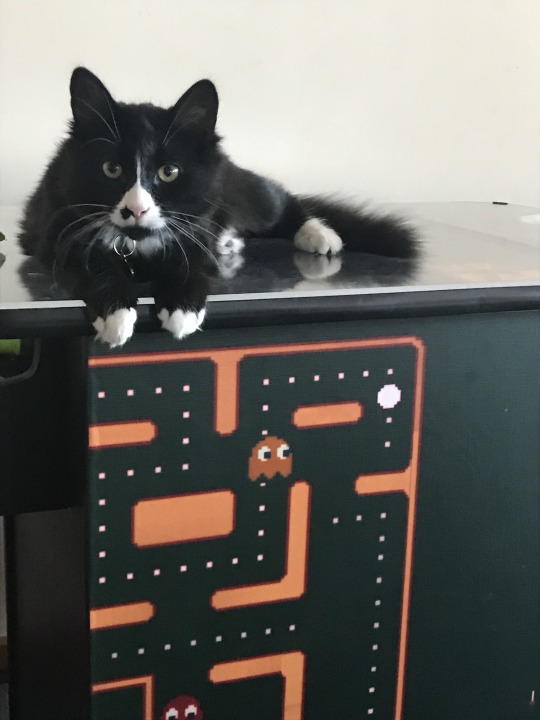
I still haven't submitted my dreadfully complicated tax return. I am seriously procrastinating, and having visitors and reasons to road trip is helping/hurting.
So! BFGFAQ (big fat gnarly...you get it): It’s the political one. From the Kiwis this usually comes in the form of “are you a Trump refugee?” or “what do you make of what’s going on over there?” And even if it’s not an explicit question, how can I possibly answer the most frequent Q of all time -- “why did you move to New Zealand?” without considering how the political landscape of the US factored in? I mean, you don't just up and move across the globe and leave a great place and a fabulous life without at least a mental checklist of pros and cons. At least, most of us wouldn't. And if you’re a grown-up (which we sadly have established that I am) and a contributing, aware, member of society (which I would argue that I am), your list must include considerations of the way your taxes are spent and people are treated in the place you live and how the outcomes of those things impact your lifestyle, your life, and the lives of other human beings. Right? Right!
MAJOR UPDATE: A handful of days after I posted this, someone (likely an asshole white supremacist) shot and killed people in a CHCH mosque. The city is still in lock down as I write this. It is terrible and sad that things like this happen anywhere, ever. And I just want to say that as you read the ideas below, I’ll be watching closely the response of the NZ government.
If there’s one thing that moving around the world to a place you’ve never been before, with a small family and no friends, and taking up a real life with a paycheck and a rent and a job does really well, it’s create an opportunity to reflect on the differences between where you were and where you are. It also is extremely useful for considering, in a very real way, how the values you hold are (or are not) reflected in both a political system and a local way of living. You really notice how political decisions, socioeconomic forces and cultural norms trickle into investments, infrastructure, bureaucracy, language, aesthetics, and interactions that impact you as you move through your day-to-day and learn how to get things done. And because you’re an observer who is trying to become an insider, you may operate with less bias and pre- disposition to judge, more of a natural curiosity and interest in gathering information and then assimilating it and deciding over time. Chalk one up for perspective! Happy to say this was the kind of experience and growth I hoped we’d all get through this adventure.
Now, from the Americans this question usually comes in the form of something like “OMG, are you so glad you’re not here for this?” or “are public healthcare and lack of gun violence really as amazing as they seem from here?”. Because, like me, most people I talk with on a regular basis feel something like this:
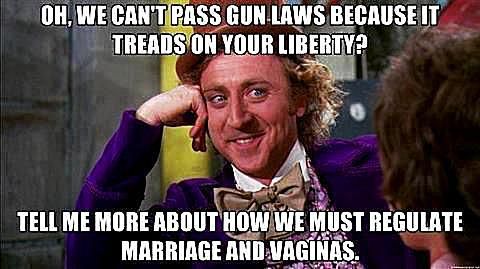
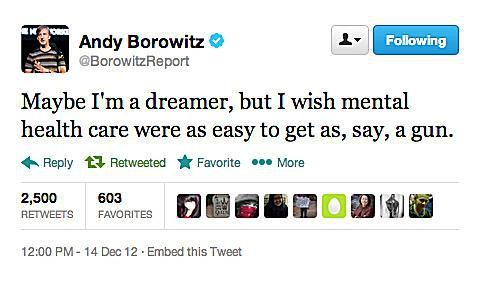
t least you do now, thanks to Willie Wonka’s and friend above, and this:
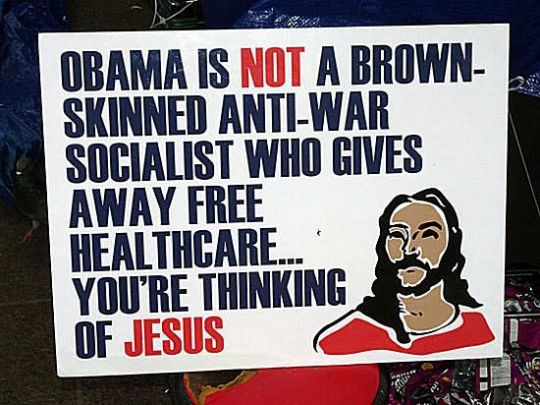
So while I am not here in NZ without political bias or personal ideas of what’s right, wrong and important, I am more open minded to considering what’s good for this country and this context, and I have a stronger appreciation for the complexities of things all across the board since I’ve now gathered more data and had more experience.
So, my American friends, in the interest of helping you draw some of your own conclusions, here is a segment I like to call Fact, Figures and Feelings:
America is amazing. You have SO much of everything. Including great food, tons of money, vast political power, and a really noticeable amount of homeless people. I mean! When I was in San Jose I felt so conflicted by both where to go for every meal and the fact that to get where I wanted to go I was uncomfortable with my own feelings and anxiety about possible conflict with the homeless and mentally ill folks I passed constantly. And it was often while I was walking into a convention center full of people trying to give away millions of dollars, listening to speakers who had made millions through technology. And while the dog adoption station on site and the furry friends in it made me feel a little better in the moment, could there be anything more cliche? Embarrassing. And yet is it fundamentally bad to have cute dogs making rich people feel good and maybe getting adopted? No. But it maybe uniquely American.
Know what else you have a lot of, USA? DRAMA. Seriously. The NZ morning news is usually about 25-50% reporting on the shitshow that is US and Brexit, and it turns out that when people say “if you get homesick, just listen to the news” they are correct.
So what about NZ? Well, when you live in a country with SO MANY FEWER (like so many!) people and a much smaller GDP, your reality is very different. Not so loud. Not so busy. Not so many options. Much much simpler and frankly, it feels more sane. But we know the Mexican food sucks. So... six of one/half dozen of the other? This is what I am saying: I cannot tell you if Enchiladas and Aveda products make up for dealing with the opioid crisis if you’re seeing it every day, or if leaving Tito’s vodka and a much higher salary on the table is balanced out by the fact that police here in CHCH carried guns last week and this is how people think about it:
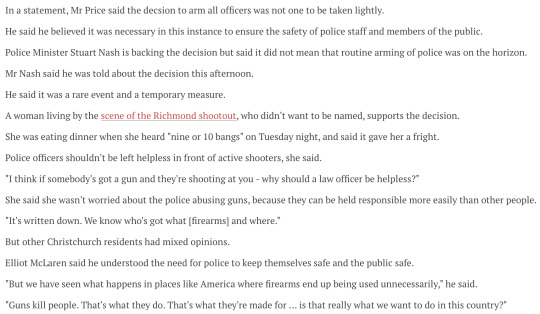
FUN FACT: During the “summer holidays” (December-Jan), the morning news show on public radio literally went off air. They replaced it with special summer programming, mostly dedicated to personal profiles and reviews of music and activities. The only headlines they read each day were almost entirely about the US (shut downs) and UK (Brexit). Apparently it’s possible for time off to extend to politics and news. WOW. Just notice how you feel about that.
Now, NZ is certainly not the rainbows and unicorns utopia we liberals like to think a place with a public healthcare system and affordable education and far fewer guns will be -- there’s a growing imbalance in the distribution of wealth, the abortion laws are archaic, affordable housing is a big issue, nurses and teachers strike because they don’t get paid enough.
Politics was not the only motivator for our move, but we considered it -- sure seemed like a nice time to be out of the US, and it is. It’s certainly not a clear #NZFTW-100% -they -nailed-it situation, though. Every place and every system has its bad sides, and I have a lot to learn to really decide how the pros and cons balance out. All I know is that it’s really, really nice to be in a place where the political conversation is much simpler and more focused on politics and their outcomes on people than on hateful rhetoric. I am disappointed when I think of the lost opportunity due to the amount of resources you are wasting on unproductive, unkind conversations in the USA, when you have so much. I feel bad for not being there to help stand up for the rights of people I believe in, but when you don't wake up angry every day at the headlines and the people you share space with, when the dialog is a little more open and productive, when the headlines are not so likely to be violent and sad, you start with a much better mental health baseline. You just can’t eat a great caesar salad whenever you feel like it, and it’s expensive as hell to leave the island and you don’t get paid enough to be able to do it often, which may really stress you out. For now, I’m really ok with it. But over time will the flaws in the NZ system (every system has them) outweigh the positive? Do the opportunities in the US outweigh the negative?
In the interest of letting you form some your own opinions: Take a look at the the top headlines of 2018 in New Zealand. They include a pregnant PM; visits from Ed Sheeran, the Royals, and Obama; a handful of natural disasters; a bunch of news about other countries and sports; and the BIG BIG Drama which “unfolded over several deeply uncomfortable days” and ended in a minister being briefly admitted to a mental health facility and broad discussions about mental health. Consider if the US was as concerned about its politicians’ mental health when they did crazy shit :-).
Oh also, this is my CEO at work on Friday (hee hee):
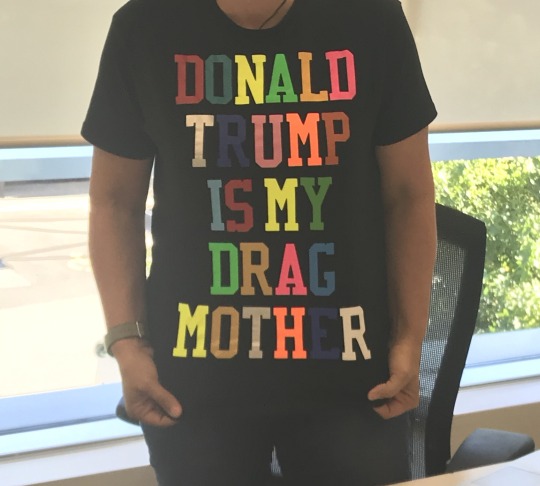
So far this year Lime Scooters (people get hurt on them, and people break the rules and double ride with no helmets -- gasp!) and the potential of a capital gains tax have been in the news pretty much daily. And that’s about it. Boring? Yes! Nice? Also yes! Did you know NZ is the only country in the OECD to not have a CGT? Are you impressed with my knowledge of initialisms? Worldly is the word you’re looking for to describe me.
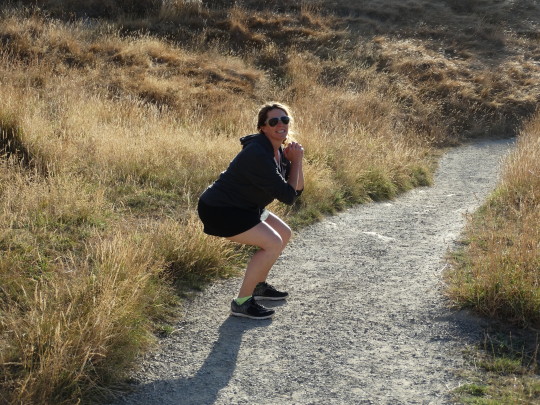
I know, it looks like I am pooping on a trail, but I am actually doing squats mid-hike IN A SKIRT. Probably gives me enough credibility to become a world leader, or at least present these numbers for your consideration:
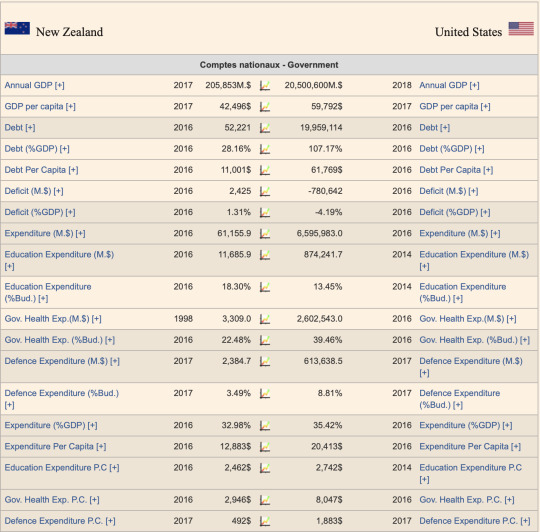
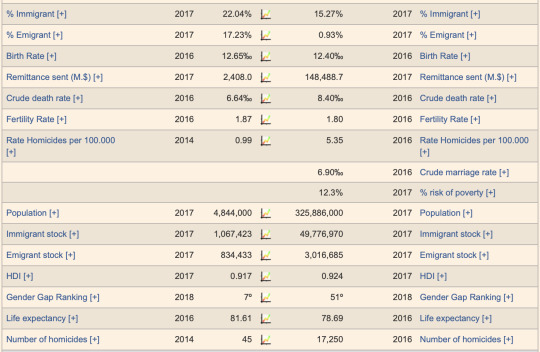
Now that you have something to think about -- because you weren't already thinking about politics enough (sorry!) -- let’s turn to a less political, but more important spiritual and philosophical topic: The Art of the Road Trip.
Pro tip: It’s easier to be a Road Trip Rembrandt with the right tools -- like these:

Mountains + Vans = Roadtrip Masterpiece
I think I mentioned in an earlier post that one of the things we’ve been doing a lot of is road tripping. Not so different from Seattle, eh? True. But since we can surf so close to the house and we have such a beautiful country to explore and a slightly less active social life, the road trips are more frequent and more varied. As we are all happiest when we’re in the flow and hitting the right balance between challenge and success, I guess it makes sense. Because if I do say so myself, we are damn good at the road trip, but there’s no way to have 2 to 6 people in a small space with a lot of stuff and a windy road ahead and podcasts and music to choose without challenge.

#vanlifeisthebestlife.
Here’s a map of where we’ve been on our travels thorough the country so far:
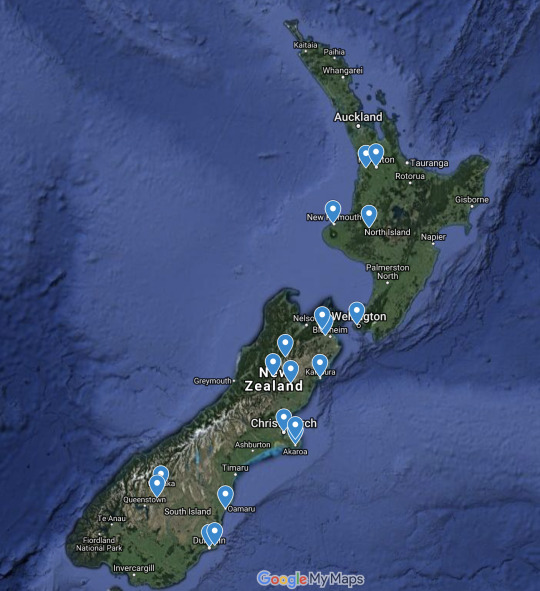
So what’s the art of the road trip? Composition:


And the science? One part great music, one part planning, and at least two parts having a sense of humor and joy about all the chaos.
Like when there’s no where for you to sit:
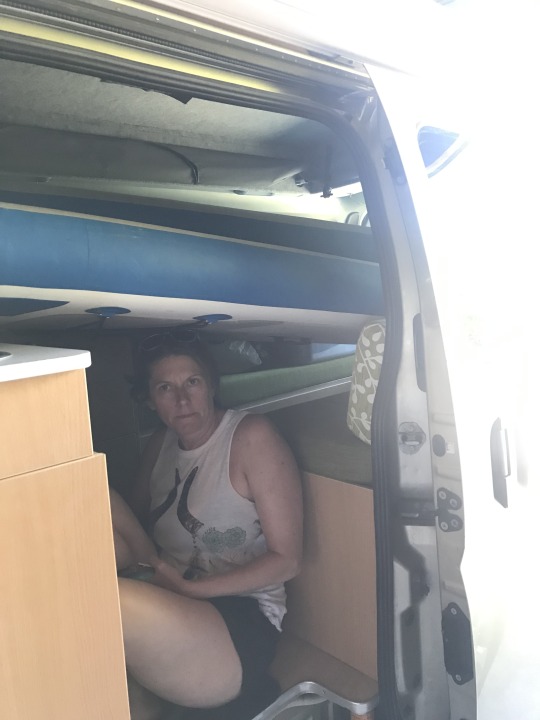
My most recent road trips were extra awesome due to the fact that Leslie Lapham (AKA Alex, AKA LL) was here and we took off on a few fun adventures. Now, Leslie is great for a lot of reasons and it was super fun to have her here for 5 weeks...and one of her best qualities, she takes great pictures!
Here’s what I like to say about our first trip: it started with a bang and ended with a bee sting.
Here’s the bang -- this is what happens when some dickhead decides to pass you on the right at high speed on a highway while you are TURNING RIGHT into a campground:
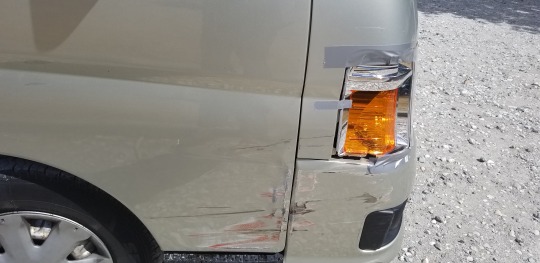
So, that sucked. Especially because aforementioned dickhead did not stop to see if we were ok, just left us there in the dark on our own. Luckily the Taupe Donkey was still drivable and packing enough duct tape to make it work. So, off we headed from Kaikoura to make ourselves feel better in the vineyards and wineries of Marlborough.

The Cloudy Bay Winery was not a bad place to spend an afternoon!
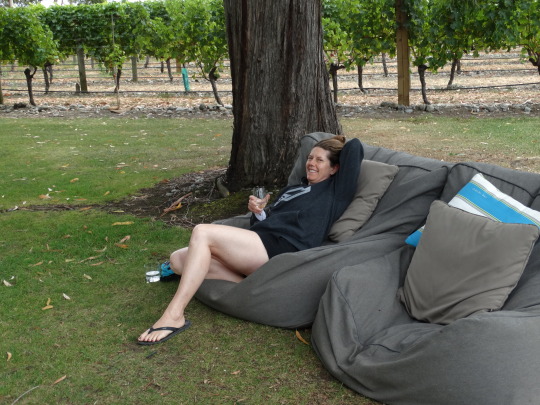
Watson’s Way (not pictured) was a really weird place to spend a night though -- we were basically parked in a gravel parking lot in someone’s yard. But man, did we have some good food!
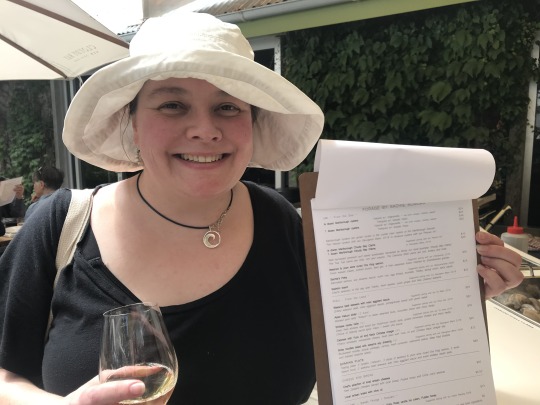
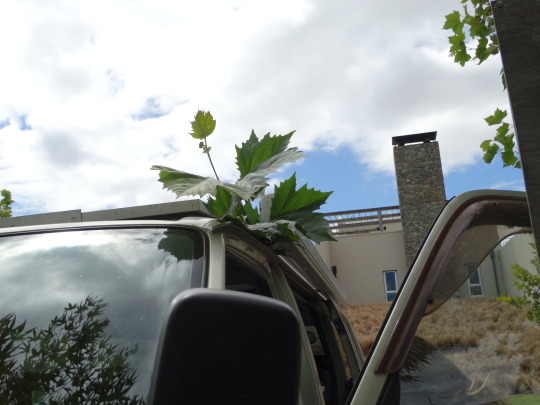
Although oops, I accidentally tried to take a grapevine as a souvenir. And I swear this was before I even did a tasting!
After wine tasting and an amazing dinner at Arbor, we headed to the Marlborough Sounds, starting at Havelock, the mussel capital of the world!
We did a cool tour on the mailboat, which literally delivers mail, packages, animals, groceries, and god knows what else (possibly the odd tourist by accident?) to the residents of the remote 300 or so bays in the region, which can only be reached by boat.


We ate a lot, of course. But we ordered more than we could eat.
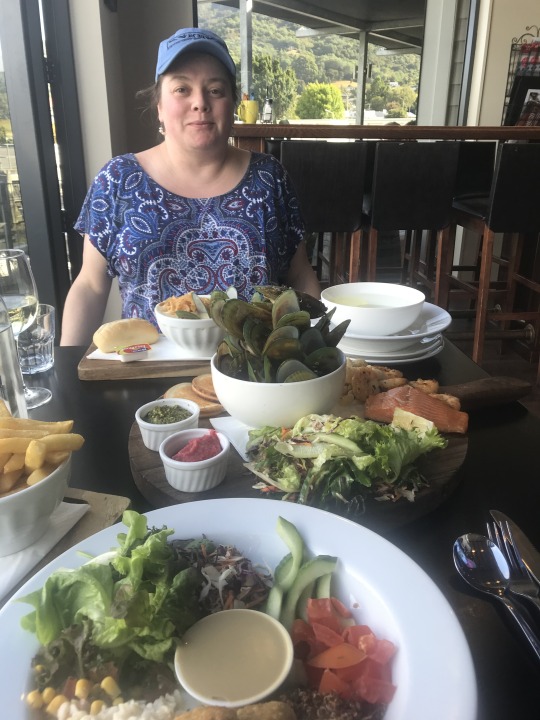
After that we headed south on the inland route and camped overnight at the Tasman Lakes National Park.
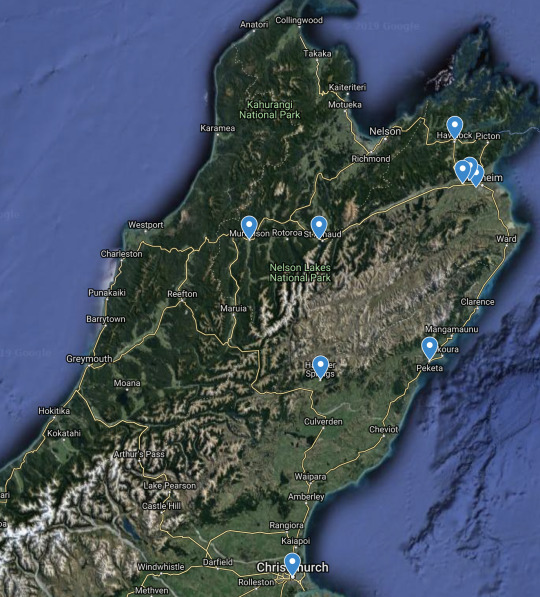
There were eels, pretty views, and random dock yoga.
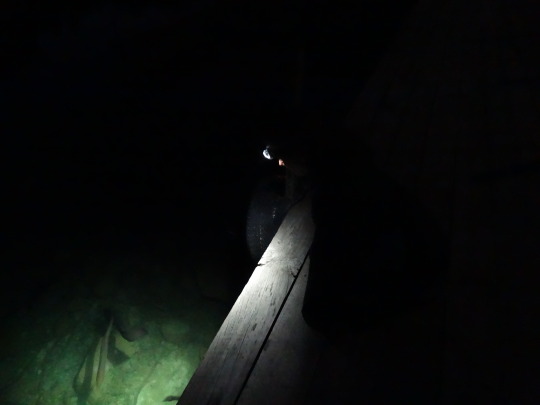

And last but definitely not least, we topped off the trip by meeting Jason at the always fabulous Hanmer Springs Thermal Pools. What a drive to get there, too! I did get stung by a bee while I was soaking, which was a total and pretty painful shock, despite the signs warning people to watch out for bees. Little fuckers!
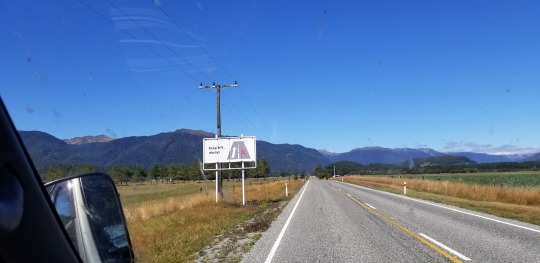
After that, back to co-working and a couple weekends in CHCH:

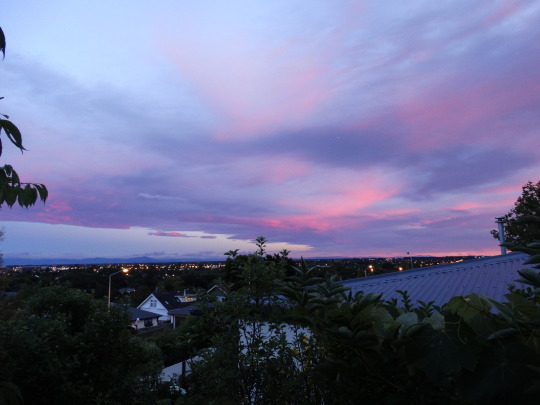
Then...Lois!!!
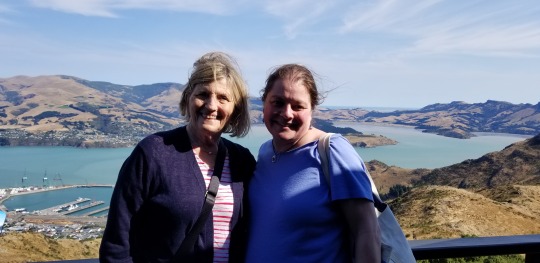
Now this blog is not about all the visitors and it’s already so long I dare not start going on about having Leslie and Lois here together. Suffice it to say we had some fun times, some great food, and after 8 hours in the emergency room we did a quick road trip to Oamaru. There were PENGUINS!!!!
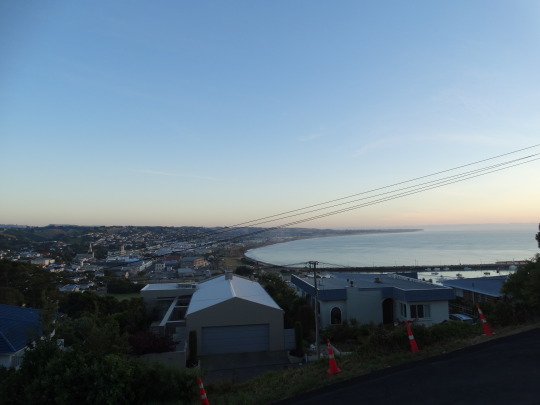
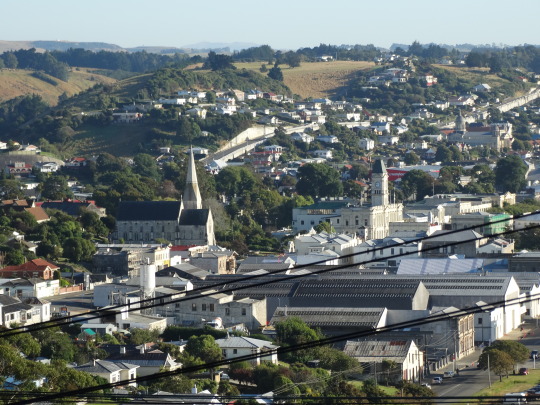
There were penguins!!! We saw them waddle onto the beach at dusk after swimming 50K through the ocean all day. Alas, you cannot take pictures of them, so you’ll have to settle for 3 Generations of Wachsmuth Women in the Wild until next time. XO.
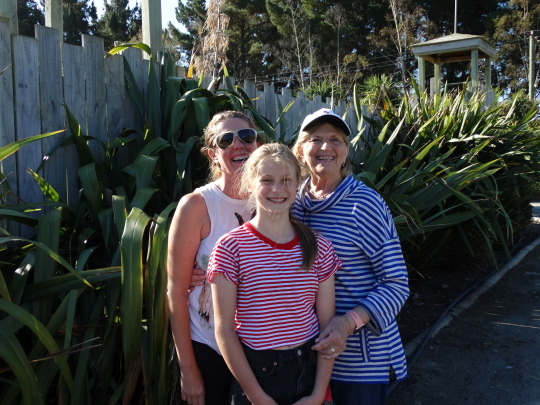
2 notes
·
View notes
Text
After a Natural Disaster, Is It Better to Rebuild or Retreat?
By John Schwartz, NY Times, Dec. 13, 2018
NEW ORLEANS--Should communities hit over and over again by natural disasters--like hurricanes, fires, earthquakes and tornadoes--keep rebuilding? Or should they retreat from areas that are especially disaster prone?
It’s a question that will become only more urgent as climate change continues to fuel extreme weather. And it is especially resonant here in New Orleans, which has suffered untold extreme weather events in its 300-year history. The most damaging, of course, was 13 years ago, when the winds and rains of Hurricane Katrina breached the city’s flawed hurricane defenses.
It could apply to San Juan, P.R., still struggling to recover from Hurricane Maria; to towns in California virtually erased by forest fires; to neighborhoods in Houston repeatedly soaked by rising waters.
The rebuilding question was asked by Dean Baquet, the executive editor of The New York Times and a native of New Orleans, during a discussion with Mitch Landrieu, the former New Orleans mayor and lieutenant governor of Louisiana, and Walter Isaacson, the best-selling author and professor of history at Tulane University.
Mr. Baquet described driving around San Juan after Hurricane Maria and wondering whether some areas were so damaged and are so delicate that they should not be rebuilt. He said the same of driving around New York City after Hurricane Sandy.
It is a question many people asked about New Orleans in the days after Hurricane Katrina, when so much of the city was under water and so much essential infrastructure had been destroyed. Dennis Hastert, the speaker of the House of Representatives at the time, said flatly that rebuilding “doesn’t make sense to me.”
That kind of thinking rankles Mr. Landrieu, who was Louisiana’s lieutenant governor during Hurricane Katrina. “The people in New Orleans get really defensive about this,” he said.
But, simply saying that people should not live in a place ignores reality, he said. “You can’t just pick up people and say, ‘You have to go somewhere else.’ The world doesn’t work that way.”
About 85 percent of Americans live in places that might be considered at risk, he said. “You have to protect yourself by making yourself stronger,” he added, with design and construction that help the population withstand and recover from disaster.
Professor Isaacson, also a native New Orleanian, said the lessons of Hurricane Katrina had yet to be learned in other vulnerable parts of the country. Hospitals in the city had to be evacuated in 2005 because the hurricane caused extensive power blackouts--seven years later, during Hurricane Sandy, New York hospitals also had to be evacuated. Now, New York is doing what New Orleans had to do, taking steps like strengthening buildings, hardening power infrastructure and elevating generators.
To a large degree, New Orleans has made its way back since Hurricane Katrina. More than 17.7 million people visited the city in 2017 and spent an estimated $8.7 billion, a record. There are more restaurants for them to choose from than there were before the storm.
The city has regained roughly 81 percent of its pre-Katrina population, and many neighborhoods no longer show signs of the flood. But the hard-hit Lower Ninth Ward still has less than half its pre-hurricane population.
The city still struggles with a stubbornly high crime rate, and roughly 27 percent of residents live in poverty. Rents are significantly higher since Hurricane Katrina, and so are housing prices and homeowner’s insurance.
The new mayor, LaToya Cantrell, took office this year and inherited a rickety water and drainage system that will be expensive to fix, yet that infrastructure will have to be upgraded for the city to thrive.
The nation has spent billions of dollars since Hurricane Katrina on levees, flood walls, gates and pump stations around the city. But even if that is effective, Mr. Landrieu said, “If climate change continues to do what it does, if sea levels continue to rise, if the land continues to shrink, in 30 or 40 years New Orleans is going to be an island protected by this $14.6 billion barrier that we have.”
Following are excerpts from a conversation between Mr. Baquet and Mr. Landrieu. They have been edited and condensed.
MR. BAQUET After Katrina, I know the city has made a dramatic comeback. But let me ask a challenging question. What are the things that New Orleans failed to do? What were the lost opportunities?
MR. LANDRIEU As a mayor, there are only so many hours in the day and so many dollars. And given what we had to do, we did really great. But it’s obviously true that we haven’t solved all of our problems.
So what did we miss? The city was too corrupt in a state that was too corrupt. We let education get away from us; our kids were being educated in awful buildings, and they weren’t learning very much. Although crime and the murder rate continue to go down, it’s still way too high. Income inequality continues to plague us.
So if the city’s going to succeed like all great cities--Detroit’ll survive, Chicago, which was in a bad place in the ‘60s, has come back--you need a good couple of generations of really good leadership. The city’s got a long way to go. It’s still one of the great cities of the world. But from an infrastructure perspective, we’re in a really bad situation.
MR. BAQUET Are there places that shouldn’t be rebuilt? I’m not just talking about New Orleans. I’ve spent six years in California--there are places where the wildfires are that people once didn’t live. Do you rebuild all of New Orleans East? Do you rebuild the parts of San Juan that are going to get whacked in the next storm?
MR. LANDRIEU We’re going to get hit by a lot of stuff. In the West, you’re going to continue to get wildfires; you’re going to get earthquakes. In the heartland, you’re going to get tornadoes. In the East, you’re going to get hurricanes. Eighty-five percent of the people in this country live in and around what we would call vulnerable areas.
If climate change continues to do what it does, in 30 or 40 years New Orleans is going to be an island protected by the $14.6 billion levy barrier that we have, and everything south of I-10 is going to be compromised.
If you back up a little bit--and don’t get too afraid--within 100 years, the parallel where Austin and Atlanta are, is going to be the southern part of the country. That requires you to do a lot of thinking about prevention, about where people can live, where to put massive infrastructure investments. And the country’s really not having an honest discussion about that.
1 note
·
View note
Text
#MAKUT#MAR
“Name of Activity: Review of Youtube Video”
Name of YouTube video: The Rise and Rise of Bitcoin
Link of Video: https://www.youtube.com/watch?v=qk4gZrBR9CU
The Rise and Rise of Bitcoin is a 2014 American documentary film directed by Nicholas Mross.The film interviews multiple companies and people that have played important roles in the expansion of Bitcoin.
It first premiered at the Tribeca Film Festival in New York on April 23, 2014.
The film was nominated for the “Best International Documentary Film” at the 2014 Zurich Film Festival. This film has a run time of 96 minutes.
The documentary follows thirty-five-year-old computer programmer Daniel Mross. On top of his job, kids, and marriage, Daniel is an avid enthusiast of cryptocurrency,
Bitcoin. He discovered Bitcoin in 2011 and from there, he has been fascinated by anything that has to do with it. Daniel and, his brother and producer, Nicholas Mross,
decided to start filming because they believe that this could be the future of currency, and filming a documentary is one way to expedite the process. By doing this,
they were able to educate anyone who watched this film. Throughout Daniel’s journey around the world, he meets the individuals who are leading this potential financial revolution.
Bitcoin is a digital currency created in January 2009. It follows the ideas set out in a whitepaper by the mysterious and pseudonymous Satoshi Nakamoto.1 The identity of the person or persons who created the technology is still a mystery. Bitcoin offers the promise of lower transaction fees than traditional online payment mechanisms and, unlike government-issued currencies, it is operated by a decentralized authority.
Bitcoin is a type of cryptocurrency. There is no physical bitcoins, only balances kept on a public ledger that everyone has transparent access to. All bitcoin transactions are verified by a massive amount of computing power. Bitcoin is not issued or backed by any banks or governments, nor is individual bitcoins valuable as a commodity. Despite it not being legal tender in most parts of the world, bitcoin is very popular and has triggered the launch of hundreds of other cryptocurrencies, collectively referred to as altcoins. Bitcoin is commonly abbreviated as “BTC.”
Launched in 2009, bitcoin is the world’s largest cryptocurrency by market capitalization.
Unlike fiat currency, bitcoin is created, distributed, traded, and stored with the use of a decentralized ledger system, known as a blockchain.
Bitcoin’s history as a store of value has been turbulent; it has gone through several cycles of boom and bust over its relatively short lifespan.
As the earliest virtual currency to meet widespread popularity and success, bitcoin has inspired a host of other cryptocurrencies in its wake.
The bitcoin system is a collection of computers (also referred to as “nodes” or “miners”) that all run bitcoin’s code and store its blockchain. Metaphorically, a blockchain can be thought of as a collection of blocks. In each block is a collection of transactions. Because all the computers running the blockchain has the same list of blocks and transactions, and can transparently see these new blocks being filled with new bitcoin transactions, no one can cheat the system.
Anyone—whether they run a bitcoin “node” or not—can see these transactions occurring in real-time. To achieve a nefarious act, a bad actor would need to operate 51% of the computing power that makes up bitcoin. Bitcoin has around 10,000 nodes, as of June 2021, and this number is growing, making such an attack quite unlikely.2
But if an attack were to happen, bitcoin miners—the people who take part in the bitcoin network with their computers—would likely fork to a new blockchain, making the effort the bad actor put forth to achieve the attack a waste.
Balances of bitcoin tokens are kept using public and private “keys,” which are long strings of numbers and letters linked through the mathematical encryption algorithm that was used to create them. The public key (comparable to a bank account number) serves as the address published to the world and to which others may send bitcoin.
The private key (comparable to an ATM PIN) is meant to be a guarded secret and only used to authorize Bitcoin transmissions. Bitcoin keys should not be confused with a bitcoin wallet, which is a physical or digital device that facilitates the trading of bitcoin and allows users to track ownership of coins. The term “wallet” is a bit misleading, as bitcoin’s decentralized nature means it is never stored “in” a wallet, but rather decentrally on a blockchain.
Daniel and the people that he interviews are the pioneers that are adventuring into this mysterious concept.
The future goes to show that not everyone involved, in Bitcoin early, made it out unscathed.
Daniel and Nicholas Mross came up with the idea of this documentary when Daniel would have trouble explaining what Bitcoin is to his peers.
In an interview, Daniel states “And I found in the short time it was really difficult to talk to people about Bitcoin if they didn’t know what it was or to explain it … It’s not something that,
you know, especially earlier on was easy to explain to somebody in 1 or 2 minutes.”.
This documentary acts as a bridge between those educated in Bitcoin technology and those who are interested in educating themselves.
For the inquisitive minds about the inherent flaws in our current monetary system and how money works in general, this simplified overview of Bitcoin is truly refreshing. Many complex issues about the protocol are explained in laymen’s terms to enable any family member to appreciate the invention for what it accomplishes. The internet of money has been spawn and naysayers would one day regret not having explored this invention beyond first misconceptions. This documentary provides a great intro into the early adopters’ lives and why the community is blossoming in a time when the rest of the world is sinking deeper into depression and debt. It invites one to look beyond mainstream misrepresentations and that it is only a black market currency.
Great documentary indeed. Would recommend it to any friend.
I watched and enjoyed it. It is quite easy to watch and almost completely non-technical which is good for the non-bit-coiners.
It covers all the highs and lows of bit-coin from almost day one and right up to the fall of the biggest exchange.
There is no hiding of all the problems bitcoin had and faces in the future but at the same time, it is very optimistically told.
Even if you are not interested in investing in this- it is good to know what it is all about- and this movie can interestingly introduce the subject.
It would be interesting to hear an opinion of someone who doesn’t know anything about bit-coin - whom I think should be the people to watch this.
0 notes
Text
#MAR #MAKAUT #lockdownactivities
#MandatoryAdditionalRequirements
"Name of Activity: Review of Youtube Video"
Name of YouTube video: The Rise and Rise of Bitcoin
Link of Video: https://www.youtube.com/watch?v=qk4gZrBR9CU
The Rise and Rise of Bitcoin is a 2014 American documentary film directed by Nicholas Mross.The film interviews multiple companies and people that have played important roles in the expansion of Bitcoin.
It first premiered at the Tribeca Film Festival in New York on April 23, 2014.
The film was nominated for the “Best International Documentary Film” at the 2014 Zurich Film Festival. This film has a run time of 96 minutes.
The documentary follows thirty-five-year-old computer programmer Daniel Mross. On top of his job, kids, and marriage, Daniel is an avid enthusiast of cryptocurrency,
Bitcoin. He discovered Bitcoin in 2011 and from there, he has been fascinated by anything that has to do with it. Daniel and, his brother and producer, Nicholas Mross,
decided to start filming because they believe that this could be the future of currency, and filming a documentary is one way to expedite the process. By doing this,
they were able to educate anyone who watched this film. Throughout Daniel's journey around the world, he meets the individuals who are leading this potential financial revolution.
Bitcoin is a digital currency created in January 2009. It follows the ideas set out in a whitepaper by the mysterious and pseudonymous Satoshi Nakamoto.1 The identity of the person or persons who created the technology is still a mystery. Bitcoin offers the promise of lower transaction fees than traditional online payment mechanisms and, unlike government-issued currencies, it is operated by a decentralized authority.
Bitcoin is a type of cryptocurrency. There is no physical bitcoins, only balances kept on a public ledger that everyone has transparent access to. All bitcoin transactions are verified by a massive amount of computing power. Bitcoin is not issued or backed by any banks or governments, nor is individual bitcoins valuable as a commodity. Despite it not being legal tender in most parts of the world, bitcoin is very popular and has triggered the launch of hundreds of other cryptocurrencies, collectively referred to as altcoins. Bitcoin is commonly abbreviated as "BTC."
Launched in 2009, bitcoin is the world's largest cryptocurrency by market capitalization.
Unlike fiat currency, bitcoin is created, distributed, traded, and stored with the use of a decentralized ledger system, known as a blockchain.
Bitcoin's history as a store of value has been turbulent; it has gone through several cycles of boom and bust over its relatively short lifespan.
As the earliest virtual currency to meet widespread popularity and success, bitcoin has inspired a host of other cryptocurrencies in its wake.
The bitcoin system is a collection of computers (also referred to as "nodes" or "miners") that all run bitcoin's code and store its blockchain. Metaphorically, a blockchain can be thought of as a collection of blocks. In each block is a collection of transactions. Because all the computers running the blockchain has the same list of blocks and transactions, and can transparently see these new blocks being filled with new bitcoin transactions, no one can cheat the system.
Anyone—whether they run a bitcoin "node" or not—can see these transactions occurring in real-time. To achieve a nefarious act, a bad actor would need to operate 51% of the computing power that makes up bitcoin. Bitcoin has around 10,000 nodes, as of June 2021, and this number is growing, making such an attack quite unlikely.2
But if an attack were to happen, bitcoin miners—the people who take part in the bitcoin network with their computers—would likely fork to a new blockchain, making the effort the bad actor put forth to achieve the attack a waste.
Balances of bitcoin tokens are kept using public and private "keys," which are long strings of numbers and letters linked through the mathematical encryption algorithm that was used to create them. The public key (comparable to a bank account number) serves as the address published to the world and to which others may send bitcoin.
The private key (comparable to an ATM PIN) is meant to be a guarded secret and only used to authorize Bitcoin transmissions. Bitcoin keys should not be confused with a bitcoin wallet, which is a physical or digital device that facilitates the trading of bitcoin and allows users to track ownership of coins. The term "wallet" is a bit misleading, as bitcoin's decentralized nature means it is never stored "in" a wallet, but rather decentrally on a blockchain.
Daniel and the people that he interviews are the pioneers that are adventuring into this mysterious concept.
The future goes to show that not everyone involved, in Bitcoin early, made it out unscathed.
Daniel and Nicholas Mross came up with the idea of this documentary when Daniel would have trouble explaining what Bitcoin is to his peers.
In an interview, Daniel states “And I found in the short time it was really difficult to talk to people about Bitcoin if they didn't know what it was or to explain it ... It's not something that,
you know, especially earlier on was easy to explain to somebody in 1 or 2 minutes.”.
This documentary acts as a bridge between those educated in Bitcoin technology and those who are interested in educating themselves.
For the inquisitive minds about the inherent flaws in our current monetary system and how money works in general, this simplified overview of Bitcoin is truly refreshing. Many complex issues about the protocol are explained in laymen's terms to enable any family member to appreciate the invention for what it accomplishes. The internet of money has been spawn and naysayers would one day regret not having explored this invention beyond first misconceptions. This documentary provides a great intro into the early adopters' lives and why the community is blossoming in a time when the rest of the world is sinking deeper into depression and debt. It invites one to look beyond mainstream misrepresentations and that it is only a black market currency.
Great documentary indeed. Would recommend it to any friend.
I watched and enjoyed it. It is quite easy to watch and almost completely non-technical which is good for the non-bit-coiners.
It covers all the highs and lows of bit-coin from almost day one and right up to the fall of the biggest exchange.
There is no hiding of all the problems bitcoin had and faces in the future but at the same time, it is very optimistically told.
Even if you are not interested in investing in this- it is good to know what it is all about- and this movie can interestingly introduce the subject.
It would be interesting to hear an opinion of someone who doesn't know anything about bit-coin - whom I think should be the people to watch this.
0 notes
Link
In the pecking order of Christmas stories, A Christmas Carol is second only to the baby Jesus. Even if you’ve never read it, or had it read to you, you know about that flinty-hearted miser Ebenezer Scrooge and his redemption during one long dark night of the soul.
Bill Murray, Albert Finney, Michael Caine and Alastair Sim have all played Scrooge in one of the endless film remakes and reboots there have been over the years. Now comes the story behind the story, The Man Who Invented Christmas: a heavily fictionalised biopic with Dan Stevens playing Charles Dickens, bashing out A Christmas Carol in six weeks after contracting a nasty dose of writer’s block in 1843. Thanks to the success of Oliver Twist, Dickens is literary-rock-star famous. But at 31, after a handful of flops, he has a gnawing anxiety that his powers are on the wane. And with four kids, another baby on the way and debts piling up, he needs to make some serious cash, fast.
The film is a Quality Street treat for the holidays, with a gooey sweet centre – daft but immensely likable, and performed with pantomime gusto by a top-notch cast. Dickens yomps about London, meeting people who inspire the creation of Scrooge, Tiny Tim and the gang. These characters then literally come to life in his study as he writes, and they’re an unruly bunch, ruthlessly mocking his failure to finish his comeback. (Christopher Plummer is terrific as Scrooge.)
And with his flamboyant star turn as Dickens, there’s Stevens, a man who finally looks to be laying to rest his own ghost of Christmas past. Cast your mind back to 2012, when the shock death in the Downton Abbey Christmas special of his beloved character Matthew Crawley had the faithful crying into their sherry glasses.
Unlike many actors, Stevens is not at all uptight when chatting about the character who made him famous. Nevertheless, in the past five years, he has done everything possible to distance himself from Crawley, the interloping heir to the Downton pile. He has cross-dressed in the cult favourite Vimeo show High Maintenance, murdered with psychopathic charm in The Guest, freaked out on the Marvel TV spin-off Legion and locked up Emma Watson in Beauty and the Beast. He even looks different these days. Gone is the floppy blond hair, and the once boyish face is chiselled into sharp angles. Stevens credits the weight loss to moving to New York where he finds it easier to look after himself, working out at the gym and cutting out dairy.
Different, too, has been the reception granted Stevens’s post-Downton work. A pleasantly surprised tone crept into reviews, a perceptible sound of critics retracting knives and grudgingly acknowledging that, oh hang on, he’s actually a bit good, isn’t he? Stevens throws his head back laughing when asked how he feels about this change in critical fortunes. “It’s interesting. You do one show that goes everywhere, and people associate you with that. Do I think Downtown is my best work? Probably not. But if people enjoy it, or if that’s what they think of when they think of me, so be it. It served me well.” If he is offended by the question, he is too polite to say. Dan Stevens is scrupulously polite, so careful with his words that he often leaves you wondering what he really thinks.
Stevens studied English at Cambridge and was a Booker prize judge in 2012, reading 146 novels in seven months (the Downton costume team stitched secret pockets into his jackets for his Kindle). But he shrugs when I ask about historical accuracy, or the lack of it, in his latest film. (The Man Who Invented Christmas has been criticised by experts for, among other things, the inaccurate size of its newspaper headlines.) “Frankly, whether it’s historically accurate I’m not that concerned about. I was interested in that moment of the creative process, watching a great man struggle – to me, that’s dramatically and comedically interesting. Certainly I was keen not to play Dickens as a bearded old sage.”
He tells me that one of his co-stars, Miriam Margolyes, has a theory that Dickens was bipolar. Does Stevens buy that? “It’s a very interesting interpretation. I think there’s something to be said for it…” he tails off.
Needless to say, the film does not dwell on Dickens’s iffy relationships with women. (A year before publishing A Christmas Carol, he had this to say about his wife in a letter to a friend: “Catherine is as near being a donkey as one of her sex can be.”) “I think he was a good father and a terrible husband,” Stevens says diplomatically. “But yeah, I think it being a Christmas film, we wanted it to be fairly full of laughter. I don’t wish to take anything away from the man, and therefore you have to address the dark side of his nature and his work. There were moments when he was bleak and depressive. But I think there were moments when he was great fun to be around, very silly and playful.” I must say that, having watched the film, I’m still none the wiser about which yuletide customs Dickens has bragging rights on. Pudding, definitely. Turkey? Mistletoe?
Stevens loves Christmas, unironically, in a full-on, festive jumpers and stockings-hanging-on-the-fireplace kind of way. “I always have. Our house is pretty lively at Christmas,” he says. He is married to the singer Susie Hariet and they have three children. Family festivities at their gaff kick off on Christmas Eve, watching The Muppet Christmas Carol. Who does the cooking? “My mum and I usually team up. We’re quite a formidable duo in the kitchen.”
Stevens is well-spoken but not as posh as he seems. Now 35, he was adopted at seven days old, and raised in Wiltshire, Essex and Brecon in Wales. He spent his early teenage years rebelling against anything and everything, but still got the grades to win a scholarship to a prestigious boys’ boarding school in Kent at 13. He wasn’t happy, feeling isolated and as if he didn’t fit in with the other kids. What was going on? “I dunno. I guess I didn’t always toe the line,” he answers a tad testily, and with a definite air of finality.
I mention that going to a top university from a comprehensive, I always felt envious of the privately educated kids who never questioned whether they were talented enough to be in the room. “The entitlement thing is a problem,” Stevens says. “It’s interesting, living in America and seeing a different system. It’s definitely got as many flaws, but there is a sense that your own achievement and drive and curiosity can achieve great things, in a way that I think is stifled in Britain.”
By the time he landed Downton, Stevens had already toured the US opposite Rebecca Hall in a production of As You Like It, and appeared on stage in the West End with Judi Dench. Did he feel any disgruntlement at the time – being a Serious Actor suddenly lumped in with a Sunday night soap opera? He shakes his head: “I never felt that people weren’t taking me seriously. I did appreciate that some people were watching Downton with a kind of ironic appreciation – perhaps the Guardian readership particularly…” he shoots me a grin, adding: “and my friends, too. But no. There was no resentment. I still see a lot of the guys. It changed all of our lives. It had a seismic effect on all our careers.”
It goes without saying that appearing in a show watched by 12 million people opened doors that appearing in off-Broadway Shakespeare never could. But as soon as he left the show he bolted for New York. What was that all about? Did the comparisons to the young Hugh Grant scare him out of the country? “No! I was just very excited about the work I was afforded over there. People there were prepared to see me do something dark and weirder. Or something action-y and mental. Or something big and silly, like Night at the Museum. It couldn’t have turned out better.”
As for Dickens, he got his instant classic. A Christmas Carol sold out its first run of 6,000 copies before Christmas Eve. The tale melted hearts of even the most dyed-in-the-wool cynics – one American businessman gave his staff an extra day’s holiday. Not that Dickens made the killing he’d hoped for. After getting carried away with gilt lettering and fancy paper, he never trousered the £1,000 he had banked on. God bless us, every one.
The Man Who Invented Christmas is out in the US; released in the UK on 1 December
#film#dan stevens#charles dickens#the man who invented christmas#culture#cooking Christmas Dinner with Mum
55 notes
·
View notes
Photo
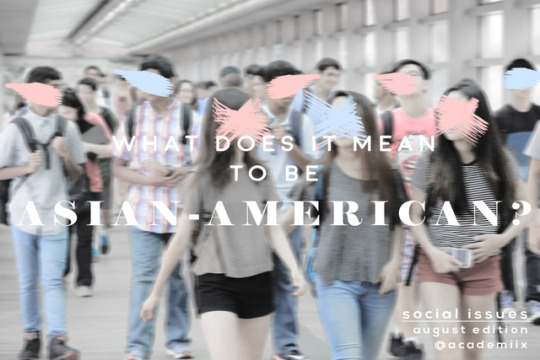
Please read if you show genuine interest and will not leave rude/racist comments
“Growing up, I thought I was white. It didn't occur to me I was Asian-American until I was studying abroad in Denmark and there was a little bit of prejudice.”
―Maya Lin
What does it mean to be Asian-American? is a question I often ask myself in the rare moments of spare time as a teenager still figuring out my identity. It used to just be a passing thought, a small part of myself that I didn’t care too much about. But the more mature I become, the less I can ignore this blatant label plastered onto my face. Everything I did became “Asian-American,” and I learned to embrace this identity, passion surging through my veins every time I heard the hyphenated word.
The first time I truly stopped to search “Asian-American” on Google Images was for a project in freshman year. We had to create a memoir, and I chose to draw a self-portrait, but ran out of ideas how to portray my “Asian-Americaness.” What I found was typical - the picture-perfect family, a few pictures of the legendary show Fresh Off the Boat, countless students with graduation caps and gear from prestigious universities, Whiz Kids, The Rise of Asian Americans - I know it all.
Asian-Americans are, in my opinion, the most homogenized ethnic group in American society. This quote quite sums it up: “Years ago...they used to think you were Fu Manchu or Charlie Chan. Then they thought you must own a laundry or a restaurant. Now they think all we know how to do is sit in front of a computer” (quote from an Asian-American high school teacher). We’re homogenized because of our relatively low population (5.6% of America) and because of so-called “quiteness” (or in some people’s opinions, “submissive”) that doesn’t draw much attention. This standardization, the unreal, machine-like uniformity is extremely dangerous.
the model minority myth
This phrase is not uncommon when discussing stereotyping of Asian-Americans. I’ll just give a brief explanation: it’s the theory that Asian-Americans are the “best type of minority” and centers around the question, “why can’t other minorities be like Asian-Americans?” The term envelops all Asian-Americans under one certain image of a quiet, studious, math-genius Harvard kid who will probably find an upper-middle class life and not be aggressively engaged in politics.
This, of course, is a myth. And if anything, does more harm than good. The stereotype forces all Asian-American families of different racial groups, socio-economic backgrounds into a single image. It ignores the struggles that low-income Asian-American families face, and instead gives others a false perception of them having a perfect life. The term doesn’t account for the racial groups that statistically don’t have high education degrees, dehumanizes individuals so that they have robotic-like qualities, and creates a social pressure that steers many Asian-Americans away from certain career pathways (i.e. lack of Asian-American representation in media).
The myth also erases other forms of racial discrimination because according to the model minority myth, “Asian-Americans only have good stereotypes.” But these stereotypes, are they really good? How many times have I been pressured to succeed academically and economically to the point where I broke down in tears? How many times did I feel like I was not good enough, not smart enough, not “Asian” enough? Too many to remember. And it’s not just me - Asian-Americans have some of the highest rates of depressive thoughts yet a great number don’t seek help. From my personal experiences, they don’t seek help because they’re scared. They’re supposed to have “perfect lives,” and if they were to tell someone (especially a non-Asian-American), they would not be taken seriously. My counselor even told my best friend (who used to have depression) and I that we probably wouldn’t understand what mental illness are like - and we both think the assumption is based on the model minority myth.
There’s also the debate of affirmative action. Personally I agree that affirmative action is a good idea but with some flaws in the system. There’s the increasing thought that model minority stereotype has made elite universities try to limit the accepted number of Asian-Americans, which causes the modern effort to be “as less Asian as possible” on applications. Affirmative action is supposed to increase diversity, but when there are suddenly too many of the same type of minority, suddenly Asian-Americans are no longer considered as “the diversity.” Did they forget the practical slavery that Asian immigrants faced during the 1800-1900s just because of the myth that Asian-Americans excel? Does my last name truly matter more than my other qualities? (There’s one case where an Indian-American student applied to medical school I believe and pretended to be an African-American. Apparently the change of race helped him in the admissions a lot.) Now I’m not saying that affirmative action is bad, what I’m questioning is, why should my ethnicity, which has been empirically otherized and discriminated against, still harm my educational opportunities?
the bamboo ceiling
Here is where the model minority myth gets cut short. After all the seemingly positive stereotypes, Asian-Americans will inevitably be sub-par in American society because of the “bamboo ceiling.” This is the line between white Americans and Asian-Americans that recreates the racial hierarchy. “Good but not good enough”, “honorary white person”, “good, but not white enough”, “smart, but perhaps your communication skills aren’t that good...oh wait, you can speak English fluently??”
According to statistics in a majority of the fields with a prevalence of Asian-Americans (i.e. medicine, tech industry, even law, etc), a relatively minuscule percentage of Asian-Americans hold upper-management positions. Even in areas where there aren’t many Asian-Americans, the percentage is still less than the average percentage of Asian-Americans in the country (i.e. politics and entertainment). Of course slowly these barriers are breaking away, but I believe the reason why the bamboo ceiling exists is because of the inability for many to differentiate between Asian immigrants and Asian-born Americans. For example, my parents truly have some issues with speaking “perfect English,” but that doesn’t apply to me...yet, in some people’s minds, it does apply to me.
Perhaps the bamboo ceiling is caused by the fear of a reality of the model minority stereotype. Perhaps the barrier is there so that white Americans could still have an advantage in the workforce, because they are afraid that a dominant Asian-American co-worker will take their place. Just leaving the idea out there; you can decide for yourself if my theory is plausible.
The combination of the model minority and the bamboo ceiling puts us in some odd situation - we’re somewhere between revered and disliked, don’t know whether we should feel grateful or disgusted, and that’s where I begin to question my identity.
Jay Kang’s article discusses the Asian-American identity in his recent article:
“‘Asian-American’ is a mostly meaningless term. Nobody grows up speaking Asian-American, nobody sits down to Asian-American food with their Asian-American parents and nobody goes on pilgrimages back to their motherland of Asian-America...We share stereotypes, mostly — tiger moms, music lessons and the unexamined march toward success, however it’s defined...
Discrimination is what really binds Asian-Americans together.”
Thanks for reading! Please I would be honored if you could spare a minute taking this poll!
#social issues#social activism#race#ethnicity#identity#asian american#racism#microaggression#model minority#mine:social
660 notes
·
View notes
Text
I have always wonder if school was all that important for me? I feel like the school system was all for fun and games. I don’t remember learning much from some of my teachers in middle and high school. I remember some good ones and most of them are my English teachers. From math to science, I hate them all. I thought most of them were quite egotistical and prideful in the way they carry themselves. I did not feel that any of them had any patience with me. The only thing I was glad of that they could not hit me like the teachers in Vietnam did. I remember trying to fit in with the smart kids, so I decided to register for AP Chemisty and AP Biology. I am sure many of them were smart, but they used their intelligence and share with their friends so they all could pass. What was unfair was that they did not want to share them with me. I thought like, damn if you’re going to cheat... you might as well let me cheat too, why the discrimination? So, most of the American Asians who does speak English in my class, pretty much cheat off one another to get good grades. I did not know what the fuck was going on in class. All I know is these people I am surrounded myself are douchebags and assholes. I feel sad for them. I feel sad for me because there is no way in hell I was going to listen to these jerks. To be honest with you guys, I do believe education is a great way to open a person mind and build up their self-confidences, but the way our society educated us youngins is awfully flawed. We favor the good ones over the bad ones when good or bad, they all have their own ways of learning. It is your incompetent for not knowing how to identify which methods work for which kids.
0 notes
Text
Blog post #4: We aren’t all fine with things online #DigitalGap
The Sage Encyclopedia defines the Digital Divide as “the disparity that exists among individuals and communities around the world with varying degrees of access to digitally mediated information and communication technologies (ICTs) and ability to benefit from digital resources”, or simply put, the gap between peoples on their availability to use digital resources and how they actually benefit from such technologies and information (Pazurek & Feyissa, 2015). This Digital Divide directly impacts the skillsets of digital literacy and the opportunities present in using these resources, such as collaborative communication, critical thinking skills, general knowledge and information, as well as having the skills to adapt and navigate through our constantly changing digital world (Radovanovic, 14 Dec 2011). In order to combat this growing divide, there is a strive for Digital Equity, defined as the assurance that “all individuals and communities have the information technology capacity needed for full participation in our society, democracy, and economy”, through practices of Digital Inclusion, which are the activities and actions that must be done in order for even the most disadvantaged people to be able to access and use these technologies (The National Digital Inclusion Alliance, 2016). An example of this would be public libraries in communities, having access to free WiFi, and having mentors or instructors able to provide instruction on digital literacies who are accessible and open to the masses. Because our world is constantly becoming more dependant on communication and efficiency through technology, as well as having resources available through technology, the discussion of the Digital Divide is crucial to acknowledge; if technology continues to advance but we do not address how communities and individuals are not able to keep up or even provide basic access to the internet or technologies, then the divide will grow at both ends- advancing technologies and declining ability to provide. One example that is especially applicable to this class is the idea of Linkedin; while the traditional American mentality of finding a job is all about putting yourself out there and meeting up with employers in your area, that mentality has shifted quite a deal in the last 30 years. While it is still possible to get a job that way, having access to the internet and knowing the skills and format needed to create an online profile for yourself to market to future employers increases your visibility exponentially. Picture this: we have two people, both looking for a run of the mill office job. Person one, a good worker and personable, has not had much experience or education regarding how to market themselves online and doesn’t rely on websites such as LinkedIn. They search for their jobs based on word of mouth and knowing their location on what places they could potentially work for. Person two, on the other hand, who is also a good worker and personable, is able to broadcast his skill sets and resume all over the internet; they have targeted potential employers based on different filters in interests that they have set, and have been able to find contacts of current employees as well as what they are looking for prior to initiating any kind of interview or application. Even though both people are hard workers and nice to be around, Person Two’s ability to network, get background information, find employers actively looking to hire with specified qualifications, and being able to set a first impression without ever having to meet anyone based on the professional look of their profile, will have a much higher chance of being seen and being able to reach out to employers. Even if Person Two was less qualified or not as good of a worker, their ability to cast a wider net (so to speak) and have an appearance of someone who is up to date, will put them over the top compared to their less digital savvy competition.
This Digital Divide is crucial to acknowledge in the face of the COVID-19 Pandemic, where our society has been forced to switch much of our educative and working lives to digital. Workplaces, Universities, and even the National Guard have all placed measures in order for work or school to continue, all the while following in accordance with social distancing practices. While certainly a solution, this transition to all digital tech poses a threat to those who are unable to access and participate in these changes due to a lack of resources and equipment. When speaking from personal experience, the Army has an expectation for things to be completed outside of the duty day, as well as being able to work and complete a task at a moments notice. The biggest problem regarding this mentality is that while sergeants and above, as well as officers, are expected to complete tasks digitally whenever possible, they are not guaranteed access to such technologies (or in many cases, never provided these technologies to have on their person for their own time). While the Army culture has made it clear that “improvise, adapt, overcome” is the way to go about not having all technologies afforded to them (as this isn’t entirely realistic in a combat zone), back on the homefront this high expectation to be available to work without having the equipment proves difficult for many soldiers. With COVID-19 now moving the National Guard drill weekends to online, even junior soldiers are now expected to have computers at their disposal- even though their own leaders aren’t always provided the resources to work online from their homes. This expectation becomes even more challenging due to the fact that many of the paperwork and other tasks that need to be completed are accomplished on government websites- which require a Common Access Card Reader to sign into these websites. These CAC readers are not guaranteed to be provided by the unit, providing another obstacle that must be dealt with at the personal level. Technical Sergeant Erich B. Smith of the National Guard Bureau, addresses this issue in the news article Guard Members use innovative ways to train, keep distance from the Army Times, by noting that “additional steps were taken to ensure Airmen could access that platform from a variety of locations and devices”, though this is a case by case basis and doesn’t address the needs of the Army (Smith, 2020).
From an article in the New York Times, the number of absences nationwide for school attendance has dramatically increased since most education has been moved online, primarily students of a low income background who may not have access to computers or consistent internet. They report that some teachers have seen fewer than half of their students regularly participating in class, with many being unable to be reached due to living in rural areas or not being able to afford connectivity due to the economic impacts of the virus. (Golstein, Hannah-Jones & Popescu, 8 April 2020). While some districts may have school issued equipment, this isn’t the case overall nor does that help if kids are unable to have access to the internet due to this trying time. With the effects of this pandemic exposing the flaws to our current system and the things we must put in place to ensure that all students have the tools necessary to complete their education, surely it brings a call for Digital Equity. While I know that some internet providers have allowed for free internet access in some areas (during my quarantine in Fort Hood, Texas we were provided as such), there are many more obstacles that this event has brought into the light, and with that hopefully a call to providing so that everyone can work no matter their circumstances.
https://www.army.mil/article/234394/guard_members_use_innovative_ways_to_train_keep_distance
https://www.nytimes.com/2020/04/06/us/coronavirus-schools-attendance-absent.html
0 notes
Text
USA 'How do we rebuild trust?' A year after admissions scandal, presidents say college must change
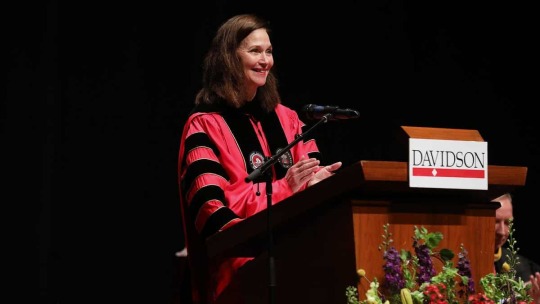
USA As shocking as the Varsity Blues college admissions scandal seemed to everyday Americans, with its accusations of bribes, faked athletic credentials and falsified test scores, it came as even more of a surprise to college presidents. Beyond the sheer scale of the fraud — millions of dollars allegedly funneled to athletics staffers, coaches and test proctors — was what it said about their institutions. Colleges, especially elite ones, have long viewed themselves as places open to anyone, where promising students from any background can find support to learn, grow and prepare for successful careers. What if none of that was true? If it was mainly the rich and famous gaining access to America's top schools, how open were they, really? College admissions scam: How the privileged gamed the system The college admissions scam involving Lori Loughlin and Felicity Huffman shows how some rich families use a “side door” to game an already unfair education system. Just the FAQs, USA TODAY Many Americans, it became clear, were convinced the college admissions process was rigged, and the only way to get a leg up was to cheat. A year later, six leaders of some of the country's most selective colleges say they, too, have been questioning the fairness of college admissions. They take responsibility for some of the public's mistrust of higher education. But they also say Americans' obsession with being the best in all avenues of life is partially to blame. USA TODAY interviewed six presidents of selective colleges to see what has changed in higher education since the admissions scandal — and what hasn't. Excerpts have been lightly edited and presented together, although each interview was conducted separately.

Bucknell University in Lewisburg, Pennsylvania. Emily Paine, Bucknell University

Bucknell University President John Bravman Emily Paine, Bucknell University John Bravman, president of Bucknell University, a private college in Pennsylvania: Some of the interviews I saw absolutely solidified in my mind that neither child nor parents understood what college was about. Colleges of this caliber, frankly, are not finishing schools. I think they were being approached as finishing schools, or schools where you can meet your future partner. Or where you're going to get hooked up with the right alum. Does that happen sometimes? Sure. That's not the purpose of higher education.

Davidson College President Carol Quillen Davidson College Carol Quillen, president of Davidson College, a liberal arts college in North Carolina: The big takeaway for me was there is no public confidence in the integrity of higher education admission. And how do we rebuild trust with the public and live up to our obligation to make education a public good, and to serve the societies and communities that support us? How do we make the case that the public should and can trust higher education?

Trinity College President Joanne Berger-Sweeny. Julie Bidwell, Trinity College Joanne Berger-Sweeney, president of Trinity College, a liberal arts college in Connecticut: The positive thing about Varsity Blues was it allowed people to recognize that there may be flaws when you're just trying to assess a candidate on SAT scores. Maybe I keep hounding on that issue because, you know, Trinity, we became a test-optional institution. (In 2015, Trinity gave prospective students the option to include their ACT and SAT scores as part of their application, rather than requiring test scores for all applicants.) We recognized SATs can be flawed instruments. They can be viewed in a total package, but it's as though people have started to believe that SATs were correlated with how smart their kids were and how well they were going to do. And there was a lot of counterevidence to that.

The University of Washington's Seattle campus Nikko Hellstern / Getty Images
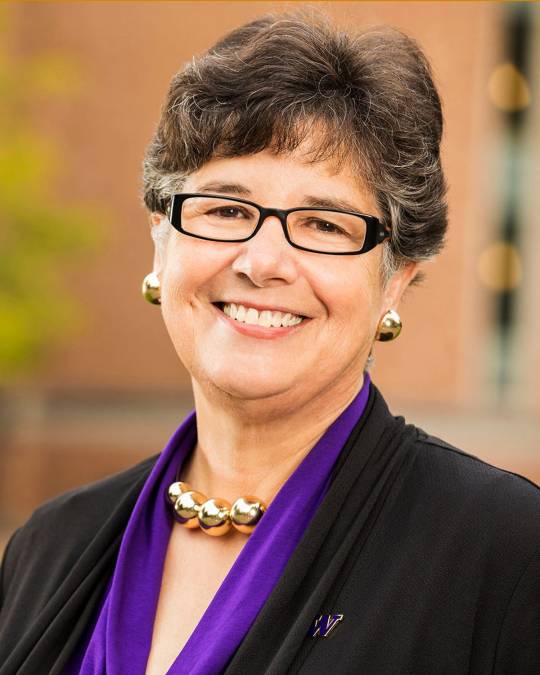
President Ana Mari Cauce of University of Washington Mark Stone, University of Washington Ana Mari Cauce, president of the University of Washington, a public institution: I think that the data does suggest it's very much a myth, but that is very much present for some parents, more than others, and that's the 'getting into the right school or not getting into the right school will determine everyone's path in life.' Part of what has kept that myth and has perhaps grown that myth is the side effect of the middle class being hollowed out. There's a broader discussion to be had about: What are our priorities? I think for a large public like the UW, it has to be in part: How do we rebuild the middle class?

Carol Christ, chancellor of University of California, Berkeley. UC Berkeley Carol Christ, chancellor of the University of California at Berkeley, a public university: So I fault, in part, the college rankings that create what I think is a false sense that there's an ordinal ranking of quality of institutions, which anybody who knows higher education knows isn't true. So people kind of have a false sense: 'If I go to number two, it's going to be better than number three, which is better than number four.' The truth is there are many excellent choices for every student. And students are so anxious about getting into the right college that they apply to many more than used to be the case. I realize this is ancient history, but when I was applying to college, you applied to three colleges. Now students routinely apply to 12 to 15 colleges, which makes on the other side of the desk, the admissions business, very difficult. You have no idea what students are going to accept your offer.

Davidson College President Carol Quillen Davidson College Quillen (Davidson): It seems to me that the post-secondary education sector is being asked to educate many, many more people much more quickly at a much lower cost for an uncertain economic future. And so how do we participate in doing that? It's our job to make sure that it's available to everyone. Not everybody is going to want the same kind of education. So differentiation is good. We should support each other as we differentiate and offer different things to different groups of learners.

Trinity College President Joanne Berger-Sweeny. Julie Bidwell, Trinity College Berger-Sweeney (Trinity): We're putting too much pressure on these kids now about college admissions. Any narrative about finding the perfect college probably disservices the students and their family. There are lots of great institutions. There are great students, and it's about finding (a) good fit. And the likelihood is that there is more than one college or two colleges out there that are good fits. And any idea that you have to go to a specific college or a specific place, it's putting too much pressure on our system. We're in a country that believes in prestige and particular institutions come with a prestige factor. We try to get away from calling ourselves elite, but I recognize being at Trinity College, we do have a particular and strong brand. Cashing in on U.S. college admissions: This Harvard grad has made millions on international students

Cornell University, an Ivy League school in Ithaca, New York Wikipedia

Bucknell University President John Bravman Emily Paine, Bucknell University Bravman (Bucknell): I'm 62 years old. It seems my whole life has just seen a slow decline in the overall view of institutions of all types. And why would colleges be immune from that? Everything is under scrutiny like never before. So something like Varsity Blues ignites a passion in people, understandably. We know we’re an expensive option. So that just throws in there another piece about wealth and fame and fortune and therefore of access. I try to explain who we are, who we're not, why it costs so much to go to college — there are good answers there for what people expect today — and I just find there's no solution as a silver bullet. You communicate, you communicate, you communicate. You explain who you are, what you do, how you do it, and you hope to make headway.

Cornell University President Martha Pollack. Jason Koski, Cornell University Martha Pollack, president of Cornell University, a private university: That skepticism really bothers me. It bothers me because I think a lot of the people who are making those claims are still sending their kids to college. I worry the students who could benefit the most financially might get that message and not come. I firmly believe, and there’s evidence to show this, that people are healthier, they’re more involved in their community, there's all kinds of nonfinancial benefits that accrue from a university education. Often when people ask what’s my greatest challenge, they think I am going to say long-term financial stability, and that is a challenge. But what I say is I don’t think a lot of the public does realize what we do in universities.

Trinity College President Joanne Berger-Sweeny. Julie Bidwell, Trinity College Berger-Sweeney (Trinity): (About six years ago, when she became president, she was tasked with making the student body more talented.) In order to get better students, I needed more financial aid. Because we were excluding a number of really talented, smart students, not because of their ability, but because of their ability to pay. And so, when I was able to convince the trustees that we needed more money for financial aid, we went out and started to recruit from a broader pool than we had before. What I love to tell people is talent exists across every zip code and every geographic region of the country. Opportunity doesn't always exist across those. So when I had more money that I could put into financial aid, I was able to recruit better, more talented students on every scale and metric that I had. It so happened that it was a more diverse student body.

Sproul Hall on the campus of the University of California at Berkeley is a symbol of the Free Speech Movement of the 1960s. Eric Risberg/AP

Carol Christ, chancellor of University of California, Berkeley. UC Berkeley Christ (Berkeley): When you think about the kind of volume of applications that a place like Berkeley gets, you're comparing applicants that have had every opportunity with people whose opportunities have been very limited. (For the fall 2019 class, Berkeley turned away about 35,600 applicants for its freshman class with weighted GPAs of 4.0 or higher.) And how do you make choices if you're a state institution serving the state of California? What responsibility do you have to choose a student body that's in some way representative of the state, or that gives economic opportunities through really excellent higher education to populations in the state that have had less of a chance at those advantages? So it's an enormously fraught subject.

President, Ana Mari Cauce, University of Washington. Mark Stone, University of Washington Cauce (Washington): Yes, we’re a selective university, but we're not as highly selective as some, particularly in terms of our in-state applications. There are still students that we turn down that I know could have done well here and that I take zero pride in the fact that we are not able to take them. As proud as I am about the fabulous students that we admit, I always also have to say that I am sorry that there are some excellent students that we were simply not able to make room for. The bottom line is what we want for our state of Washington is to have a very high-functioning set of public universities so that students who don't get in here have other good options.

Davidson College in North Carolina Public Domain / Wikimedia Commons

President, Ana Mari Cauce, University of Washington. Mark Stone, University of Washington Cauce (Washington): It's the question of who pays for it. That's part of why it's so important to have strong public trust, for people to understand that public universities, and in particular, higher education more broadly, is not just a benefit to the individual student, but it's a benefit to society at large. For example, one-third of our students aim to be the first in their family to graduate from college — a full third of our students. When that happens, not only are you changing the trajectory of their lives, but usually of their younger brothers and sisters, their children, et cetera. They’re more apt to be employed. They’re more apt to vote. There’s a whole host of positive consequences.

Cornell University President Martha Pollack. Jason Koski, Cornell University Pollack (Cornell): We have to truly address the affordability issue. That means being much clearer about what the actual costs are. We've got this very complicated system with sticker prices, and then Pell Grants (federal scholarships for low-income students), and then other kinds of grants and work-study. I think we have to work to drive down costs for those in the middle class who are being squeezed even once they understand the actual cost. Then I think we somehow have to figure out how to tell a better story about what college is doing for our young alumni. And maybe we should be relying on their own voices, because I go around the country, meeting with Cornell alumni, young, middle-aged, old, and they tell an extraordinary story about the impact that their education has had on them.

Trinity College in Hartford, Connecticut. AL FERREIRA, Trinity College

Trinity College President Joanne Berger-Sweeny. Julie Bidwell, Trinity College Berger-Sweeney (Trinity): The largest democratization of higher education with the GI Bill (a massive program that made it possible for veterans to attend college paid by the government). Where before, when college education was pretty much more or less for the wealthy or more elite, I'm sorry to say a number of college and university presidents were not supportive of the GI Bill. They did not know how they were going to handle a more diverse population. It's a little bit of a reminder and maybe a small bit of history repeating itself. This isn't a new thing for higher education. We have been having arguments about diversity in higher education for quite a while in the U.S. For the most part, we have come out on the right side of history.

Bucknell University President John Bravman Emily Paine, Bucknell University Bravman (Bucknell): Students today are very different than they were 44 years ago. They're different than they were 10 years ago. So we see a continuing evolution in the student mindset. And we don't have the luxury, and the wealthiest schools in the country don't have the luxury, of just assuming: 'Hey, this is who we are. Take it or leave it.'

Carol Christ, chancellor of University of California, Berkeley. UC Berkeley Christ (Berkeley): I think the great challenge at the University of California, certainly where I sit at Berkeley, is not that we want to admit students who wouldn't be able to do the work. It's that there are so many students who are applying who would do the work brilliantly, but we don't have space for, so that's the real challenge we have to solve.

President, Ana Mari Cauce, University of Washington. Mark Stone, University of Washington Cauce (Washington): I certainly hope more and more of us are saying: We want to be judged by the quality of education and the experience we give to students that come here, not by the number of students we turn down, which just stokes the anxiety of students and creates the conditions that led to Varsity Blues. I hope that we continue to look at how can institutions of higher education continue to play this role they have played historically of building, and in this case it would be rebuilding, the middle class and being a pathway to social mobility. I think there are some aspects of reproducing privilege that we need to look at very carefully.

Cornell University President Martha Pollack. Jason Koski, Cornell University Pollack (Cornell): We're still going to want to be doing a better job of explaining what it actually costs to go to college. I think we're still going to be driving towards ways to, and this is an important point, not to just bring in more middle- and low-income students, but support them once they're there. So when people talk about diversity and inclusion, the inclusion part is important.

Davidson College President Carol Quillen Davidson College Quillen (Davidson): People seem to be interacting with other people who are just like them and living in this sort of echo-chamber world where something like getting into school can become a thing for which you're willing to break the law. Part of it is: How do we address the conditions that are now dividing us? How do we think about unequal access to all kinds of resources, not just education, but other things? How do we address growing disparities in wealth? How do we think about building a society where democratic public life is possible and we're all effective citizens and care about the well being of each other? How do we build that world, and what is higher ed's role in building that world? Only in a very rarefied environment can getting your kid into a particular institution become the obsession of your life. Admissions isn't the only obsession: Divorce? Marry off your kid? As financial aid confusion grows, parents get drastic Editor's note: Data in fact boxes comes from the federal government's College Navigator. The four-year graduation rate refers to students who started in fall 2012. Pell Grants refer to a federal grant given to students from low-income families. Education coverage at USA TODAY is made possible in part by a grant from the Bill and Melinda Gates Foundation. The Gates Foundation does not provide editorial input.
Read the full article
0 notes